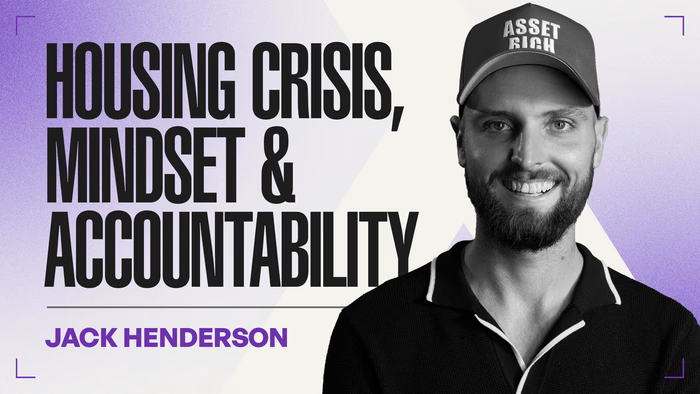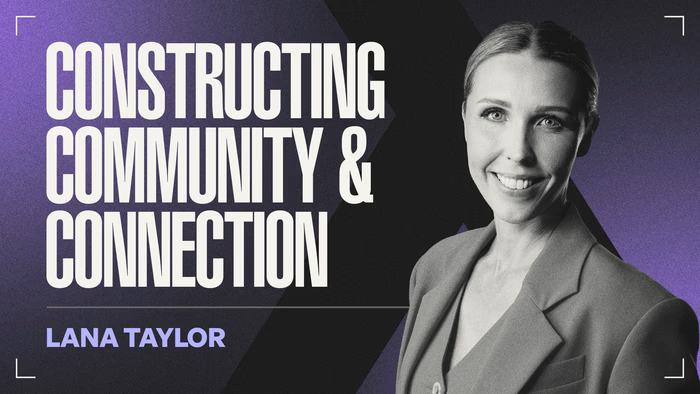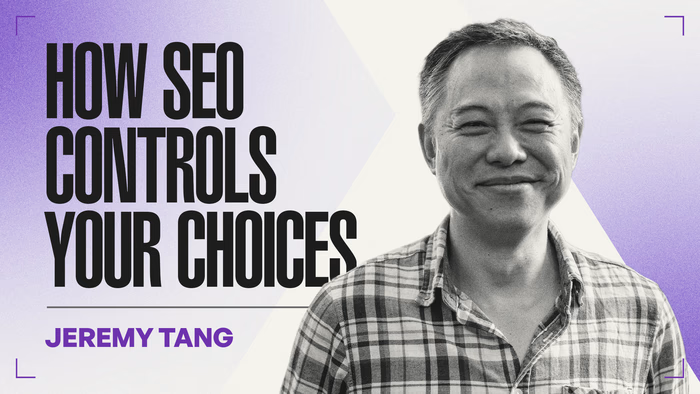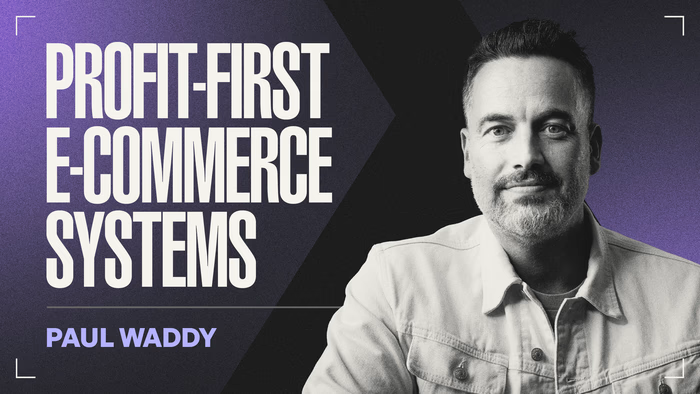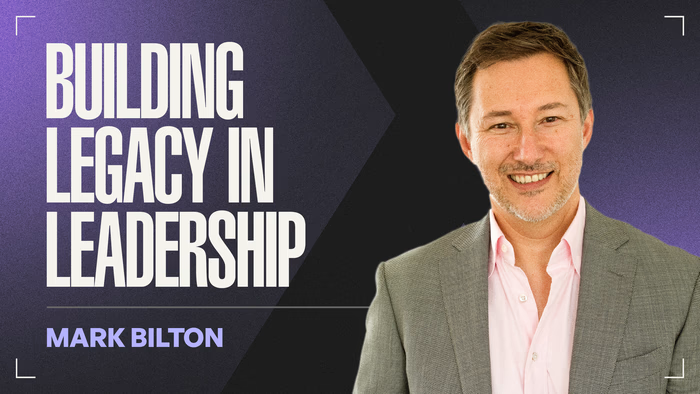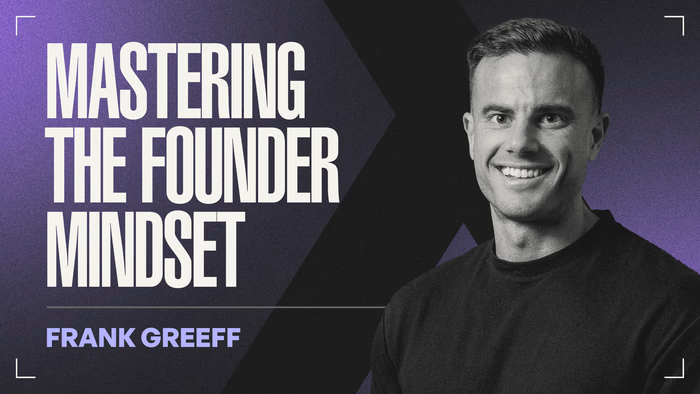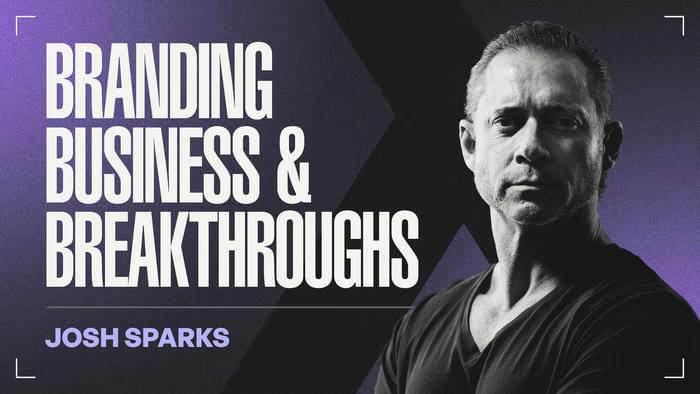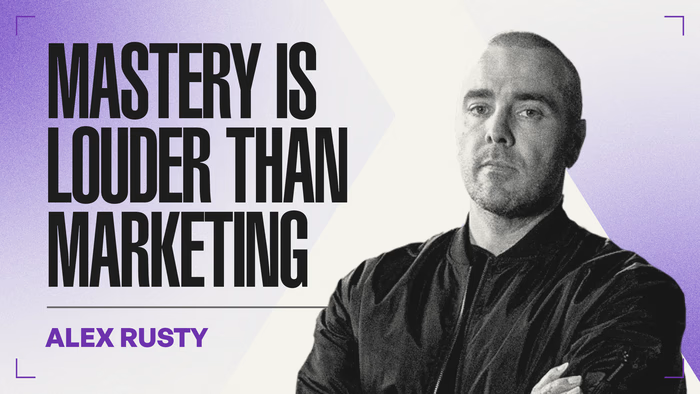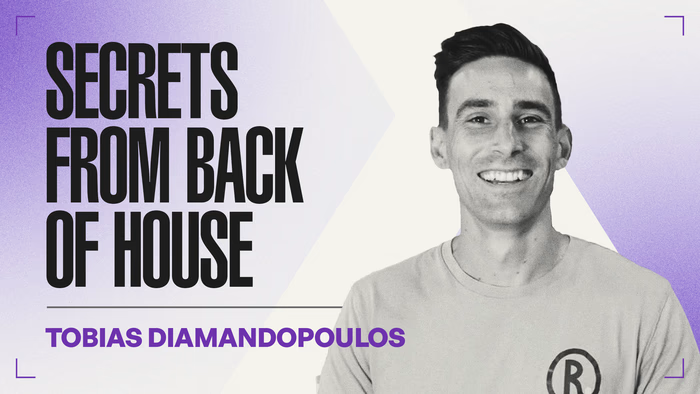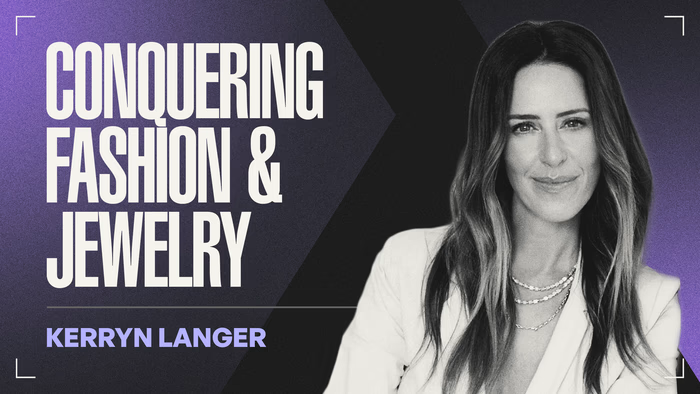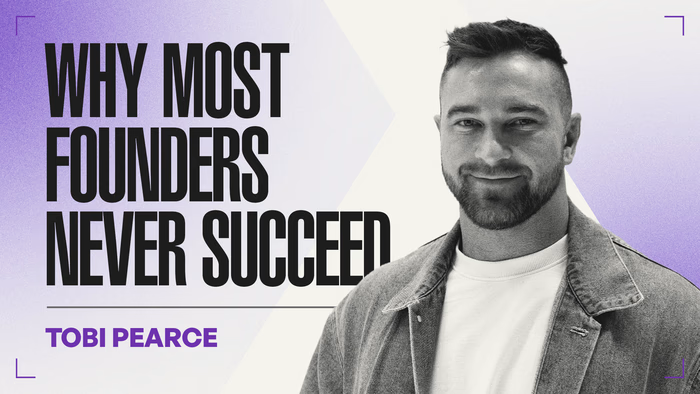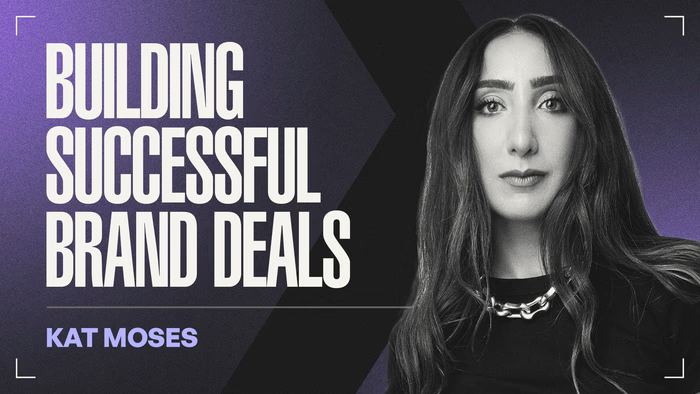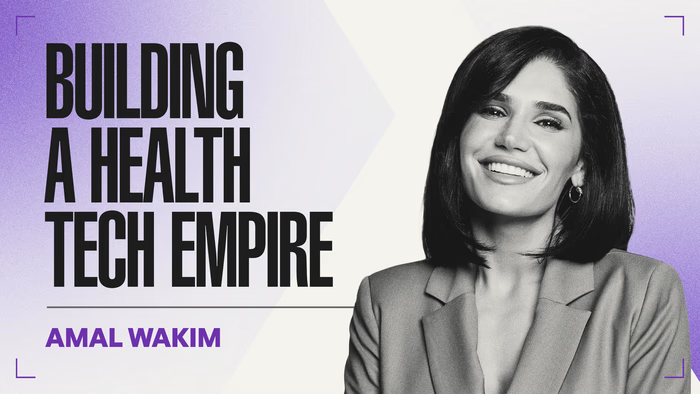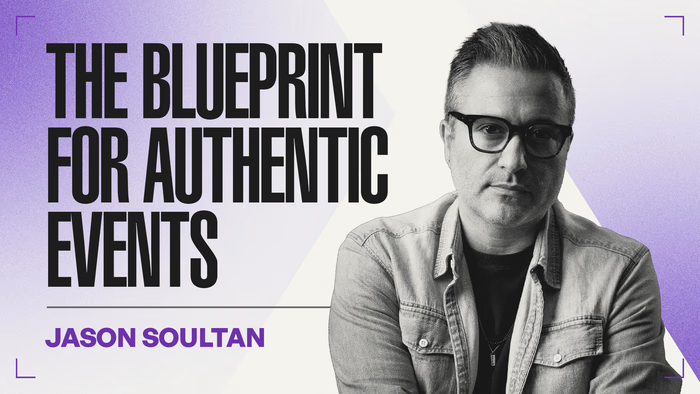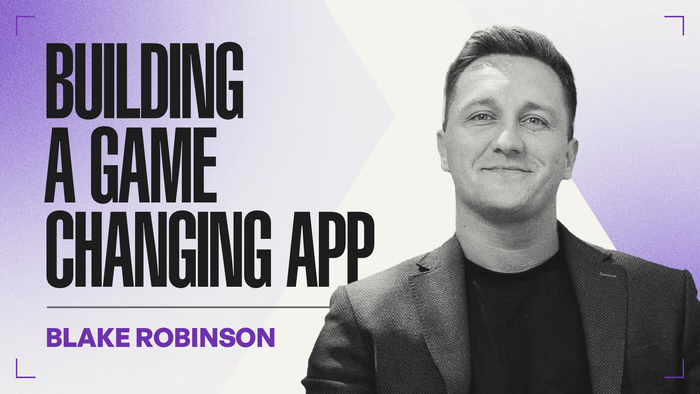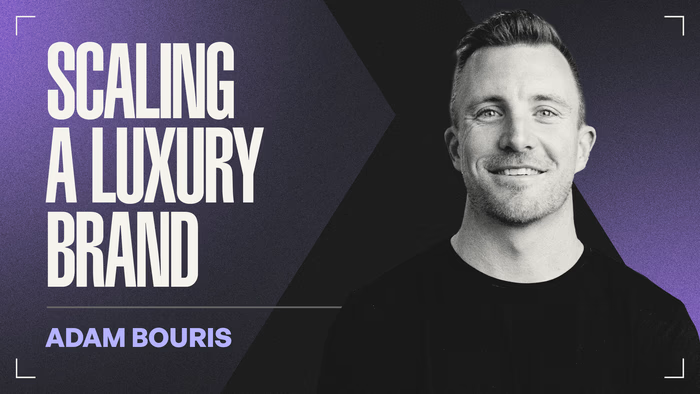


TLDR
The Evolution of SEO: Embracing AI and Automation for Digital Marketing Success
In the ever-changing landscape of digital marketing, search engine optimization (SEO) remains a critical component of any successful online strategy. However, as technology advances and consumer behavior shifts, traditional SEO practices are no longer enough to stay competitive. In a recent interview, Jeremy Tang, a leading expert in programmatic SEO, shared valuable insights on how AI and automation are revolutionizing the industry and what businesses need to do to stay ahead.
The Untapped Potential of Long-Tail Keywords
One of the most significant revelations from Tang's interview is the vast untapped potential of long-tail keywords. While many SEO strategies focus on high-volume, competitive "head" terms, Tang argues that this approach only targets about 10% of the total search opportunity. The real goldmine lies in the countless long-tail keywords that, while individually low in volume, collectively represent a massive portion of search traffic.
"If we drill down exactly what search marketing is at its core, it's just a big Q&A game," Tang explains. By creating content that addresses these specific, often overlooked queries, businesses can capture a significant amount of targeted traffic with less competition.
Programmatic SEO: Scaling Content Creation
To effectively target these long-tail opportunities, businesses need to create a large volume of highly specific, relevant content. This is where programmatic SEO comes into play. Tang's company, CMAX, has developed an AI-powered system that can generate and manage hundreds of thousands of pages of content, each tailored to address specific long-tail queries.
This approach allows businesses to compete on a scale previously only achievable by internet giants like Amazon, which has over 134 million pages targeting long-tail keywords. By automating content creation and optimization, even smaller businesses can now capture a significant share of the search market.
The Importance of Fresh, Relevant Content
Another crucial aspect of modern SEO is the need for fresh, regularly updated content. Tang emphasizes that Google's algorithms heavily favor recent, relevant information over older content, even if the older content is of higher quality.
"You could have a whole ton of content deployed, but if you don't tend to it, if you don't maintain it, that content becomes a liability," Tang warns. This underscores the need for ongoing content management and updates, not just initial creation.
AI and Creativity: A New Paradigm for Content Creation
The rise of AI in content creation has sparked debates about its impact on human creativity. Tang offers a nuanced perspective, suggesting that AI should be seen as a tool to enhance human creativity rather than replace it.
"AI kind of can replace a lot of like in the middle stuff," Tang explains. "But what it ends up being is then you kind of focus on recruiting and retaining the talent that have those skill sets that are just off the bell curve."
This shift means that while AI can handle many routine tasks, there's an increasing demand for individuals who can provide unique insights, make unexpected connections, and bring a truly human touch to content creation.
The Future of SEO and Digital Marketing
Looking ahead, Tang predicts that the SEO industry will continue to evolve rapidly. He emphasizes the importance of staying curious and embracing new technologies rather than resisting change.
Some key trends to watch include:
- The rise of "answer engine optimization" for platforms like ChatGPT
- Increased focus on user intent and comprehensive content
- Greater integration of SEO with other marketing channels
- The potential for AI to enable "single-person billion-dollar businesses"
Preparing for the Future
For businesses and marketers looking to stay ahead in this rapidly changing landscape, Tang offers several pieces of advice:
- Focus on clear communication and language skills, as these will be crucial for effectively leveraging AI tools
- Embrace a data-driven approach to SEO, testing strategies thoroughly rather than relying on industry myths
- Look for untapped opportunities in long-tail keywords and niche markets
- Invest in ongoing content maintenance and updates, not just initial creation
- Stay curious and open to new technologies and approaches
Conclusion
The world of SEO is undergoing a dramatic transformation, driven by advances in AI and automation. By embracing these changes and focusing on creating valuable, relevant content at scale, businesses can tap into vast new opportunities for growth and success online. As Jeremy Tang puts it, "It's just lean in and embrace it. And don't lose the magic of what is going on just how crazy it is."
For those ready to take their SEO strategy to the next level, exploring programmatic SEO solutions like CMAX could be the key to unlocking unprecedented growth and visibility in the digital marketplace.
Transcript
00:00:00 - 00:01:11
Blogs are a complete waste of time. Complete waste of time. And the reason for that is Jeremy Tang is a globally recognized authority in programmatic SEO and the visionary behind CMAX, the world's first true programmatic SEO platform. If we drill down exactly what search marketing is at its core, it's just a big Q&A game. Trusted by global giants like Toyota, Disney, and MLE, Jeremy is renowned for leveraging technology to drive scalable growth, unlock new market opportunities, and redefine what's
00:00:36 - 00:02:00
possible in digital strategy. You could have a whole ton of content deployed, but if you don't tend to it, if you don't maintain it, that content becomes a liability. How? There's a poem my dad gave me when I was 10. If you can dream and not make dreams your master. If you can think and not make thoughts. If you can meet with triumph and disaster and treat those two imposters just for the sake. That's heavy. Is SEO dead? How do I do this without offending people? [Music] [Music]
00:01:22 - 00:02:24
I would like to welcome my friends Jeremy Tang to the agency podcast. Welcome. Thank you, mate. Mate, you just come back from uh a trip to the States. Absolutely. Just got back from Shop Talk in Vegas. Largest Shop Talk. It's the largest ecom event in the world. about 10,000 attendees congregate and uh yeah just look at what is the latest and greatest out there but more importantly have some really great conversations with some really interesting people that are like pushing the envelope of ecom.
00:01:53 - 00:03:07
If we're shifting um into I guess thinking about what it is that you're crushing it at right now and this definitely correlates to uh e-commerce is just out of the cannon here. Is SEO dead and or is it just quietly running in the backgrounds running the economy on the internet while we're swiping past reels? Um I think well definitely not. SEO is definitely not dead. uh albeit contrary to a lot of what press is saying etc out there but I think the problem has been the focus of where SEO has been has been
00:02:30 - 00:03:32
incorrect uh I've been in the industry for over like 20 21 years now so I can speak with some level of authority on how the business how the industry has evolved and to be frank it hasn't really changed in those 20 odd years the strategies that you see today and the focus that you see today are not too dissimilar uh to what would have been done even 20 years ago at its real core. And so you've got a real challenge there when you've got an industry where the strategies have effectively been the
00:03:01 - 00:04:06
same for over 20 years, but the market has shifted. The underlying technologies have shifted so much it hasn't evolved. Like if you uh I guess a close parallel if you look at paid media and how much that's evolved like Google ads alone from what it was before to what it is now where full automation AI etc. It's just leaps and bounds and there's constant innovation. But I wouldn't you couldn't say the same thing about SEO. It's really basic and the focus the other challenge with SEO to date is that
00:03:34 - 00:04:39
the focus has really been because of how it's executed a very manual very much a cottage industry kind of uh process is it's very much focused on a select few like keywords that you know best represent a given brand. Like if you're selling dresses, of course it's dresses or or women's clothing. It could be, you know, skirts, all the jeans, all those kind of obvious terms. And they call the the head terms or the shoulder terms. They're like most popular, top of mind. And if you look at a lot of the
00:04:07 - 00:05:10
strategies out there, they all focus on these kind of select few handful of keywords and how do I rank you for X and Y? But the challenge, the problem is is that when you look at the data, those terms don't actually represent much of the actual market itself. So, I want to go right into the terminology and like kind of demystify this whole idea around it cuz you're saying that it's existed for 21 years. Um, and you hear all these populist theories like it's dead, it's this now, you know, and maybe it's
00:04:39 - 00:05:33
driven by agency owners like that's dead, do this, this is my product, it's better. Like if you think about SEO, like I think of keywords, I think of blogs, I think of trying to rank number one on Google when someone searches something. Like Jeremy, you're saying it's way more than that. It's scale, it's systems, it's fundamental, it's like the building blocks. Like can you unpack for me what exactly is SEO and then what has it been through the different eras of the internet? Right.
00:05:05 - 00:06:12
Sure. So I think the well the core point I'm making is that SEO for the last 20 21 years let's say 20 years has really been focused on just no more than 10% of the opportunity. That's really the core of it. So at scale you have all these channels and SEO maybe amounts to 10% of the total. No, actually if we look at SEO and look at the the opportunity out there on all the people that are actively looking for what a given brand sells, we look at all those different ways they articulate it, all the
00:05:39 - 00:06:43
keywords and what the volume is associated with those keywords and we analyze what is actually being targeted in a traditional SEO program, it's rarely more than 10%. So of the total things that I could own is real estate. Let's look at it as real estate. You're saying that brands are maybe fighting over 10% of the entire program is typically focused on just 10%. That 10% is kind of like I'll use an example of uh it doesn't even need to be ecom because we do work across ecom,
00:06:12 - 00:07:12
finance, medical, legal, etc. Let's do personal loans for example. Personal loans is a term that gets searched maybe 40 50,000 times a month in Australia. Okay. And what why would that be in the US? That would be probably more like uh 400,000. Wow. So it's quite a big turn. But what would happen is that say in the Australian market cuz you do a lot of work in finance. There would be a lot of terms like uh personal loans for electric bike. Oh okay. Personal loans for my barley vacation. Like really
00:06:42 - 00:07:46
obscure terms. Now, each of those individual terms represent maybe get searched 20, 50 times a month. Not very much. Very low volume terms that often get discarded. But when you add them up, there are literally hundreds of thousands of these little keywords out there, these little terms that people search. So, when you add it up, you know, you've got hundreds of thousands of these 50 search a month terms. They end up being way more than that one term. And you're saying that's about 90% pop. Exactly. Everyone's going
00:07:14 - 00:08:14
high-fiving going, I'm doing awesome. I got number one for this keyword. Not realizing that typically it's not more than 10%. Often it's a lot less than that of the actual potential. Cuz you would think it's the other way, right? I I I had the preconceived notion that, you know, the top search terms, that's where the money is. But you're saying it's inverted. Yeah. It's not. It's completely not. And I can even verify that if you look at uh Google ads data, any decentsiz account and you look at
00:07:44 - 00:08:48
the search term report and look at the actual terms that are converting, you'll realize that at least 90% if not more are coming from longtail terms, not from head terms. So can you define longtail and headtail and the difference? So a head term is essentially typically they're like short terms. the thing that comes top of mind that's most popular like dresses, sneakers, yeah, you know, socks, pants, you don't really need to think much. It's what's top of mind. And therefore, because it's top of mind,
00:08:16 - 00:09:16
that's how most people search. That's a head term. But as I mentioned using the example before, personal loan for an electric bike. That's kind of more obscure. The the general delineation is the search volume associated with it. So typically a head term would be in the thousands, tens of thousands, hundreds of thousands of so depending on your vertical and your niche. But then uh longtail terms are usually maybe 100, 200, 50, 10. Like they're very low volume terms, much more obscure. But as
00:08:46 - 00:09:50
I mentioned, there are literally tens, hundreds of thousands of these little keywords out there that are for all intents and purposes pretty much ignored. And the challenge is and why it's not really talked about. Any paid search practitioner will know this right off the bat. It's just a given. They Yeah, it's obvious. This is not anyone listening paid. Yeah. You know, so what? But for some reason, it's been a huge blind spot for SEOs. And I think it's a function of there might be some level of
00:09:19 - 00:10:19
awareness for it, but there's been no way to really address that. Do you think that's because it's requiring so much manual labor to find all of these terms and put them in the bucket together? Well, one is it's quite straightforward to actually find them. Okay. But the next step is Yeah. And I think you uh raised a good point about what is the next step. What do you do about it? That's really critical. And um if we drill down exactly what search marketing is at its core, it's just a big Q&A
00:09:48 - 00:10:44
game. Google is just a Q&A engine. It processes questions that go into it and then spits out an answer. Just shows you results, all the possible answers to your query. That's all it is. Input, output, output. That's it. Code and algorithms. Exactly. Process it then spit out this is probably the best result for you. So when you look at it from that perspective, okay, that is the game of search. So the first bit is understand what are the questions people are asking through the search engine.
00:10:17 - 00:11:13
Right? These are all the queries and there are a lot of mechanisms and tools out there that allow you to do it and you can you know you can uncover thousands of these. The next step is well how do you then knowing that these people asking then how do you answer it and there are two ways to answer it. The first is through ads which is obvious. Okay, I just bid for it. I want all the different kinds of people searching for different kinds of dresses. I want to show up and bang I bid on it and all
00:10:45 - 00:11:45
through this mechanism I get an ad and then I take them to my landing page and so forth. So that's where the bulk of spend is great. But SEO is a little bit different. SEO you need content in order to answer that question. You can't bid on it. There's no mechanism like that. Which is why the more content you have, as long as it's properly targeted, the more keywords you can target or the more questions you can answer. The more questions you can answer, the more rankings you get, the more rankings you
00:11:15 - 00:12:14
get, more traffic you get. So when you say content, can we just specify exactly what that means? Cuz I imagine that's blogs for the most part, right? Or is it more than that? Actually, it's not. So this is also a little bit our philosophy is a little bit different from the industry. Yeah. Go ahead. So we don't um we believe for the purposes of a performance-based SEO program. I think there can be other objectives SEO can perform but if it's performance-based then blogs are a complete waste of time.
00:11:44 - 00:12:37
Complete waste of time. And the reason for that is uh a couple of layers. Typically the keywords or the kind of terms or the kind of traffic you're trying to attract with a blog article are very generic, more researchbased, etc. So I get it. you try to engage them top of funnel, but also when they land on the page, a blog article page is not designed for conversion. So, as a result of that, we see time and time again, and we've worked with a lot of tier one brands, it's like, okay, we look at the
00:12:11 - 00:13:15
blog, great, you got a lot of traffic, but there's no conversions, and it's really hard to attribute anything, whether you know, 30, 60, 90day cookie window. It's it's really hard to tie together the performance of it. So that's something that we kind of like avoid pretty much. So when we're talking about content, which our philosophy, but how other people is different, it's not blogs. It's essentially content that is addresses the specific query and the intent of the query of the person
00:12:43 - 00:13:43
searching. So for example, if someone's searching for uh personal loans for electric bike, then you write content around you know that query specifically. But on a the distinction is it's on a page that's designed for conversion. Okay. Not a blog. It's it's it's not a blog. It's like they're like they're typically modeled against PPC landing pages cuz they're all designed for conversion and uh and but doing it at huge scale. So our philosophy on SEO is only things that have a high probability
00:13:13 - 00:14:18
of driving a conversion and all our content everything we do is orientated around that. We don't waste any time on blogs at all. So if you imagine this page, this PPC page about electric bikes for example, how much content do you need? Do you just answer a question with a basic paragraph? Like how much subject matter? It's usually about uh 6 to 900 words. And uh the reason for that why we have that kind of blanket one is because what's interesting about SEO is there's really two games that are
00:13:46 - 00:14:51
played. As I mentioned before, there's the game that everyone is aware of, talks about, and all the articles out there refer to it. It's the 10%. It's that head and shoulder game. So, all the related rules about algorithms, etc. uh typically related to that because that's where it's most competitive where you've really got to get a lot of variables right in order to be able to perform at that level because you got hundreds thousands of competitors in there. That's that layer
00:14:18 - 00:15:24
10%. That's the 10% opportunity. Then you got the longtail I call that below the shoulder longtail area. And that's 90% of the search opportunity. And at that level, competition drops to almost zero at that level. So if you're going like say personal loans for an electric bike or personal loans for a trip to Bali, it's so specific that nobody goes after it. And why don't they go after? Because they don't have the ability to write content that effectively targets it. Okay?
00:14:51 - 00:15:59
Because if you're taking potentially hundreds of thousands of these longtail um you know queries Yeah. and you're having to then write 900 um I guess words to attach to that that's a tremendous Yeah. No one's going to do it uplift of work. Yeah. It's it's it is physically impossible to do that scale like and that's why it's so important to have some level of automation and programmatic which hence you know the idea of programmatic SEO and a lot of people go oh wow that's kind of
00:15:26 - 00:16:45
interesting that's kind of novel never really heard about that what they don't realize is that the biggest players on the internet have been doing this for a very long time Amazon being a great example Almost 47% of Amazon's non-brand organic traffic comes from longtail pages very keyword specific page they're targeting like electric powered kettle or whatever it might be. They have 134 million of these pages. It is astronomical and it's contributing almost 50% of their non-brand organic
00:16:05 - 00:17:14
performance and they've been doing it since day dot and Trip Advisor another example. They have almost like 40 I believe uh 43 or 44 million Jesus of these pages and or Yelp. So so we do a lot of North America but Yelp is like a big directory kind of but they also have like millions of these pages. So if you think about all the biggest sites in the world, uh a lot of them use this longtail strategy and they can do that because they have a lot of content assets already. So Amazon has more products than anyone else, right? And
00:16:39 - 00:17:34
then you're uploading your product, writing your own content about the subject. Well, they don't even need to write content actually. So, Amazon is so big that you can stick battery powered kettle, put the put just that term on there at the top, slap all your products that are kind of related to a battery powered kettle and you'll get the traffic that they will get it. But the problem is is that very well, no one is an Amazon like everyone else has to do something different. The critical thing
00:17:06 - 00:18:06
is in order to be able to perform at the longtail level, you need to be able to be able to produce or display some unique content that differentiates you. It's either through your product set, your extensive product set, which is very hard to do unless you've got a billion products, or you write content, which is where I guess the the programmatic SEO comes into play that is able to generate that content at huge scale at the tens, hundreds of thousands level. Yo, my name is Dane Walker and I
00:17:36 - 00:18:39
am disgustingly obsessed with branding. I had to figure out a way to do branding every single day. So, I branded myself. Then I started my agency Rivalionary [Music] and hired a team of branding mavericks hellbent on creating brands so good that they'll make your competition their pants. So here's the thing. You want your brand to go viral and Rival makes brands go viral. That's why we're offering you a free 30inut branding session to get an expert's opinion. If you don't believe me, the proof is in
00:18:16 - 00:19:16
the pudding. Here's what clients have to say about Rival. Rival is trusted by brands like Nutrition Warehouse, Fly My Bricks, and Voodoo. So, if you want to absolutely smash the competition and make your brand go viral, hit the link below and book in your free 30-inute branding session. the programmatic piece. Can you explain what what the difference is I guess between I guess typical SEO chasing the number one rank and then hoovering up all of these longtails and programming that like what exactly is
00:18:46 - 00:19:45
that? So the the core term of programmatic in the context of programmatic SEO is really just about automation of what was previously a manual process. So if you think traditionally how it's done is uh an SEO person or maybe not even SEO person would go okay I want to target this term so I'm going to write a piece of content around it. Great actually sorry the critical distinction program is full automation. Sorry it's not partial automation. So uh that's the distinction we use but in the industry it's a little
00:19:15 - 00:20:21
murky. Some people claim they have a programmatic SEO solution, but in fact it's not programmatic because it doesn't do everything for you. It's like it's a semi-automation process. So, traditionally what it's been is I want to target this keyword. Great. I need to build a piece of content about it. So, there's different ways to do it. At the most basic level is I manually write content around it. The next level is okay, I will write with some tools like GPT, Jasper, any of these kind of
00:19:49 - 00:20:49
content tools that are out there. There are tons of them. So that's kind of a little bit more sophisticated. Great. And uh and what people used to do if they tried to scale it, they used uh things called article spinning. Um, essentially it's a very basic system where you got a piece of content and it just uses uh the sources and all these kind of things to mix them up and that was that was previously how people thought they could scale content but it doesn't work because Google's algorithms
00:20:19 - 00:21:23
got so sophisticated that it can quickly detect that that strategy. So traditionally the 99% scenario is that people will just manually write the content or use tools to write it. And so you can imagine as I mentioned uh in order to get critical mass and any value from a longtail strategy uh you're not going to invest the precious time of a writer to go and write a piece of content about personal loans for an electric bike that only gets 50 searches a month. Yeah. It's really hard to business case. too much
00:20:51 - 00:21:56
labor, too little ROI. You're never going to get an ROI on that. It's just not going to happen. And the other variable of that is when you deploy content, you've got to keep it fresh as well. That's another aspect that no one really talks about. So I What do you mean by keeping it fresh? Fresh when you when you deploy content. So Google's algorithms, the way they've evolved, I mean, all the core algorithm updates are all about how it assesses content. And one of the variables that we see uh
00:21:24 - 00:22:41
across our clients and we service clients globally not just domestically. So North America, Europe, Asia. What we see is that fresh content content freshness is very important to the point where average fresh content will outperform great old content. And I use an analogy. Let's say uh good food guy. It's a It's great content, very trusted, heavily curated. What you read in there, you you could trust the opinions that are expressed in that. And then I was going to go, "Hey, Dane, uh, I've got this uh
00:22:01 - 00:23:01
2020 good food guide. Here, go for it." And go, "Well, thanks. Yeah, it was good content in 2020." Yeah, it's not relevant right now. It's not relevant. That's complete versus say some random blogger wrote about maybe the restaurant you plan to go to just that day. So the latest happenings whether it be I guess if we take trending for example it could be things happening in media things happening in pop culture things happening across the globe taking relevant information and making it
00:22:32 - 00:23:41
current. Well, it's more that in today's world, information speed is increasing constantly, right? It feels like it's rapidly accelerating. So much. So therefore, Google rewards the sites that appear to be keeping up with that momentum. I think of content, it's like they're perishables, like at a at a supermarket or whatever. You you stock your shelves with all these produce, really awesome produce, great. And then people high-five each other and get like great we did an amazing content program
00:23:06 - 00:24:09
100 articles 50 doesn't really matter. And then what happens is that that those products get stale and they don't just get stale they start to get moldy and Google can tell this cuz it's it's able to it revisits pages and looks at and says I know nothing has changed here. Okay great. So what happens is you get a a bit of a bump of of performance typically if you if you're executing it right and then it starts to degrade and it's because of that timeline. Google knows that content has a halflife. It
00:23:37 - 00:24:38
kind of it degrades because in a competitive environment there's fresher content that comes into play targeting the same term. And so therefore it gives that credit and that's why it starts to push performance down. And that's a variable that is uh also underappreciated, ignored or hidden. I don't know. There's a lot of different motivations can go into why there's little winners. So you think about that dimension of one is there's heaps of longtail keywords out there, heaps of
00:24:08 - 00:25:15
opportunities. Traditionally, you would have to write content for it, but you don't you can't just write the content for it. You got to refresh that content as well. So that's constantly revisiting revisiting and then updating it, tweaking it, and then now you've got a really big problem because you could have a whole ton of content deployed, but if you don't tend to it, if you don't maintain it, it actually that content becomes a liability. How that whole analogy I mentioned of
00:24:41 - 00:25:41
produce, it gets stale and then moldy. Google, it all of a sudden shows that you did all this great work up front, but then Google realized you haven't done anything for a year. You're actually not doing anything now. And so it highlights the fact that you're not doing anything relative to other people who are pushing out fresh content, who are adding, you know, adding more adding more value to their index, which is all Google cares about. Well, that totally makes sense cuz if you think about
00:25:11 - 00:26:04
social media, Yeah. If I was to say, well, I posted a lot of content last year. Yeah. Why am I not still being rewarded for it? So, you're not seeing I I guess maybe a lot of people have a preconceived notion that I guess, you know, if they're writing SEO that it should be permanent and you're saying it's perishable. You have to tend to a garden and if you just let it sit there, it's going to go I guess Google flags you like. What what it doesn't flag it. It's just it's all just a competitive
00:25:38 - 00:26:26
process. It's all relative to de prioritizing you. Well, it's prioritizing other people. So, by virtue of them prioritizing others, like it just looks at the candidates that I could rank and say, "Oh, this one, oh, these guys have good content momentum. They're refreshing the context, so I'm going to give them more credit." And it might not there's no like penalty, per se. I think there's a lot of that term terminology out there about penalties, but it's not it's just it doesn't work.
00:26:02 - 00:27:07
Yeah. And then you just go, okay, you you disappear into obscurity. It's like, you know, like social media, like imagine you just posted once and then you're just hanging off that one post. Like, is that going to is that really going to And I think that kind of social media lens I think uh translates as well to SEO. Not at the same velocity. It's not like a tweet the last I don't know there was some stat last like maybe 20 30 seconds in people's consciousness, but it's not far off there. It's but
00:26:34 - 00:27:34
it's it's way shorter than most people are selling it. Like it's not in perpetuity. Yeah. You know, there's nothing there's no perpetualation from from doing a piece of content and getting benefit from it continuously. And one of the common challenges of even using AI to write content at scale is hallucinations. Yeah. I learned about this like two weeks ago. Yeah. I mean, you've probably played with it yourself. If you use AI enough, it'll come up with something that just really random that
00:27:04 - 00:28:09
does make no sense at all. And that's just how it works. I mean, it it cannot be avoided. It's intrinsic to So, the hallucinations were were and and just I guess contextualize this is like the AI makes something up that doesn't exist. Exactly. It makes something that doesn't exists. But effectively the reason why that happens uh there's a couple reasons but one of them is the training data that is used for these systems uh chatbt is pretty much trained on the entire all the content on the internet it's
00:27:37 - 00:28:32
absorbed everything and there's a lot of conflicting information on the internet well rather it's very easy to get accidental crosswise because it's just got too much information in its head right so it's it's trying to pick out of like 5,000 options which one to give exactly or more 5 billion data points and it says I've just got a question about I don't know about peppermint tea and then it does that all the time then the chance that a mistake will happen because it's got so much information out
00:28:04 - 00:28:57
there it's natural to occur like because it's you know it's it's it's uh it's just trying to it's trying to the way the AI works is trying to find the best match to it's not a hard and fast rule and that's the beauty of AI is trying to find the best match to your query. This is the information that's pro that is the closest approximation to what we believe is going to be the answer you're looking for. And because the training set is so vast, that's why it's more
00:28:31 - 00:29:50
prone to hallucinations. And so what we do differently is that we build custom LLMs, large language models that are trained only on approved content from the client. There are additional layers that you need to put on top of that but that is one fundamental thing that allows you to mitigate a lot of the risk of hallucinations which is really important for compliance industries like medical, legal, finance etc. So that's I think another aspect that has probably hindered uh the process of using
00:29:08 - 00:30:06
AI just out of the box to deploy heaps of content cuz the more you do it the higher the risk. There's a huge editorial layer that needs to be even if you're using a tool there's a lot of uh oversight that needs to take place. So to fully automate that is extremely difficult and that's where we spent a lot of our times because we knew that the clients that will get a lot better from this are these kind of compliance industries that where it takes a long time to approve content. So the return
00:29:39 - 00:30:38
on effort is really low. But with our system you write a couple of pieces of content that are typically done manually and then we get it approved. Once it's approved we use that as the training data for our system. So, if we just jump across the fence momentarily and we'll come back to how you how you're engineering all of this. If you're Google right now, what are they looking for? What are they fighting against? And what's relevant to their mission and what's critical to how they operate
00:30:08 - 00:31:31
right now? Well, what's Google's looking for is they only care about how am I going to deliver the best possible user experience for for people who interact with their properties. people on there. It keeps on engaged and coming back for more. So the fuel for that is is really content. I mean that's really it. And then uh which is why um you know their algorithm changes all about how to assess content at different levels. And uh now the challenge is that um yes they really care about content that's really
00:30:49 - 00:31:55
important but there's billions trillions of different queries that people have different kinds of questions. So their job is to try to match it up with an answer. And at the popular term level that everybody's looking for it's got heaps of choice. And that's where his algorithm is really focused on is how do I curate this to serve up the best out of the hundreds or thousands of options of content that I have out there. Let's say like you're an eagle in the sky and you're looking down
00:31:22 - 00:32:23
at the ground and it's a 10,000 km square radius and you have the whole map's covered in worms. Where do you go? Exactly. It's just it's just it's overwhelming. Absolutely overwhelming. And but if it looks at like all these terms, it's like, you know, there's there's a there's there's a whole bunch of ways people search that represents a lot of volume. And then there's this other area. It's wasteland. There's actually nothing out there. Like there's
00:31:53 - 00:32:53
nothing it can serve, you know, like it said once again, personalized. That's what I mean. Okay. So, it just finally clicked in my head. Okay. Let's let let's use the eagle analogy. Yeah. You're saying that everyone's fighting over this 10% a patch of land and there's all this wasteland where you can basically put your collection of worms uh to lure the AI or the search platform down into your domain. And you're saying Google's biggest challenge right now is there's a wasteland. There's nothing
00:32:23 - 00:33:20
there where they need content and there's nothing there. And you found a way to give that content. Exactly. To turn the wasteland into an oasis. I think a great analogy actually I spoke to a client about in the US and he used the analogy of gold which is actually a really good one cuz you know gold's been around since the day one of civilization. Yeah. And even back to ancient Samaria. Absolutely. Uh you know and uh the way that's been harvested is all surface gold. Like you can do it
00:32:52 - 00:34:04
from streams and you know it's very easy to to harvest it. But a lot of people don't realize it's just in the last 100 years that 80% of the world's gold has been harvested in the last 100 years. And the reason for that is industrialization. It's about these huge machines now that are effectively pulling tons of dirt out of the ground and extracting little specks of gold. And then you put them all together and but together they make up the bulk. And that's what this process is. It's about
00:33:28 - 00:34:27
forget about the surface gold. That's kind of like that's well and truly done. You don't pan for gold. It's like it's not going to happen. But you just do uh apply an industrial approach to it and just grab it and then understand that there's a lot of hidden misses out there, but there's enough there to to make it meaningful. So that's the that's the kind of analogy. to my devil's advocacy piece. My thought process was um that if you're mass manufacturing
00:33:57 - 00:35:01
content that Google would penalize that because it's not humanled. So, so is there fear around this? Is there mythology around this? Like how do you dispel those myths? That's that's easily the most common feedback I get and I think it's a very valid question and it goes back to the idea of competition. it's context that we have to look at and we look at what is what what drives Google it's a ranking algorithm okay so let's break down that term what is a ranking algorithm well
00:34:29 - 00:35:25
first it's rank how do I place well algorithm is a set of rules and then what is ranking ranking is essentially out of a list of potential candidates what am I going to place number one two to 100 whatever it might be because it's A uh it's all relative. It's a like a what do you call it? Like a linear list. Yeah, linear list. It's one through to a thousand. Yeah. It's all relative to one another. There's no absolute concept in Google. I think that's what people have
00:34:57 - 00:36:01
to remember. There's no absolute. It's all relative. So if we think about all the you know concern about how is the algorithm going to work etc. you know how it's going to look about this content. I think they're very valid points to consider when you look at the head and shoulder level where there's a lot of competition. Like there's 10,000 other pieces of content vying for that top 10 position. So the algorithm has to work overtime to assess cuz it's got so many options. And so
00:35:30 - 00:36:35
when there's algorithm changes, often there's a lot of fluctuations in these really head and shoulder turns. Let's contrast this long tail. There's no competition. You're the only game in town. You're the only one who's written a piece of content about, you know, yellow sneakers for an Asian guy. Let's say that it's very niche. Very niche. Guess what? Doesn't matter. You're like, I own that land. The first criteria is, is it somewhere related to what that person's
00:36:02 - 00:37:17
searching? Okay, great. There's only one. Great. I could change my ranking algorithm a billion times. it would still be the same one because there's nothing else to assess it against. That's why this is a really this is arguably a more uh algorithmically robust approach to SEO because you're not fishing where everyone else is fishing at. It's a it's a completely different game. And yeah, and I think that's where when people mention that concern, absolutely. If you use AI
00:36:39 - 00:37:42
excessively and you're trying to compete at a for a very competitive term, it could be problematic simply because you've got to use you can use AI. Google has removed any mention that it hates AI. It's just all about does it deliver more value than the other person. That's really it at the end of the day. But the assessment of the criteria of that content is a lot more stringent at that competitive level. Which is why our strategy is for our clients that want to go after these head and shoulders terms.
00:37:10 - 00:38:10
We're not saying don't, but you can. We use manually curated content. We have manual copyriters that do that focus on that area. And then for everything what we call below the shoulder, which is a longtail, we use Cmax.ai. So that's the that's the AI system because the competition is a lot lower and uh it's a lot easier to rank in that space, but it still needs to be relevant. Another thing bug bear I have about the SEO industry, it's a a lot of people don't realize it's a very
00:37:40 - 00:38:57
suspicious ind No, a very not suspicious, it's a uh superstitious. It's one of the most superstitious industries on the planet. If you consume SEO media and how it typically is, I'll use I'll use the analogy of a of a village in Transylvania as a as an appropriate analogy. There's a some sort of update occurred. Oh, my chicken died. Okay. Ask around the other villages. Oh, yeah. My chicken died, too. Oh, that's interesting. Okay. Well, let's let's let's talk now. Let's uh um so what did
00:38:19 - 00:39:23
you do before the chicken died? Like what what could happen? Says, "Oh, maybe yeah, I forgot to brush my teeth maybe." Oh, did something else. And then they conclude based on maybe two or three data points, that's it. You got to you got to brush your teeth, right? It reminds me of the uh the black plague where people like, man, you got to pee on yourself. Yeah, exactly. And that's the cure. And honestly, it's just the the statistical significance of the conclusions people make in the industry
00:38:50 - 00:40:04
is ridiculous. Like it's so anecdotal, it's embarrassing. So what you got to do if you're going to apply an SEO strategy, test it extensively. That's it. Just test it. Like don't believe whatever like this is not going to work. A lot of people say AI content won't work. Yes and no as well. Like it's it depends. And you've just got to interrogate that and go, okay, in what context doesn't it and what context does and just keep testing it and and do that. Be thorough. It's kind of SEO in
00:39:27 - 00:40:46
the digital industry is uh I feel is needs to be way more data driven than it actually is at the moment. So yeah, anyway, that's my that's my take on uh you know uh what I would do in terms of try to apply AI to improve SEO performance. Focus on content and don't take the literature at face value. Really interrogate. think does it actually make sense and run tests to see whether and prove yourself cuz all this all the content we get publicly is all curated it's all got layers of filters
00:40:07 - 00:41:25
added to it all like conflicts of interest etc trying to promote something so just that's why test yourself find out the data and then and then once you found it then go for it I I think it's interesting like if we zoom out to 10,000 ft and we look at AI search engine optimization fabric of AI down where it's making decisions on where I eat, where I do business. Now what I think is interesting about this is are are we unaware of how much we are being influenced by SEO algorithms and AI infrastructure 100%.
00:40:56 - 00:42:05
It's just like well I mean you could answer that in a heartbeat related to social media. It's all about how the platforms prioritize and if for the select few that understand how they prioritize content then those are the ones that are going to win essentially the underlying rules for you know verality in the case of social media or you know rankings in the case of of SEO. Um yeah absolutely. So if I'm looking like you said when you're in uh Vegas you were talking to people at Walmart
00:41:30 - 00:42:37
etc. Their conversation is how do we get another billion here another billion there how much advantage can I have right now as someone starting a new business if I truly understand the fundamentals of content in harmony with AI? Sure. I'll give you an example. So let's say I have a new fashion brand. I'm launching from scratch. I sell shoes and I want to go toe-to-toe with Nike. Yeah. What advantage can I have with AI and technology at my fingertips to start taking ground and getting traffic to my
00:42:04 - 00:43:28
site? I think uh it all comes down to niching down like in terms of obviously you don't take on a an entity like Nike. It might be whatever your segment is. Maybe it's a uh again I use the Asian analogy cuz I can relate to it but uh it could be running shoes for Asians. I don't know. Really bad example. Let me give you an example. So let's say um uh downhill mountain biking shoes. Exactly. So pick a very specific niche and attack the niche. Well like it goes in the it's even goes back to first
00:42:47 - 00:43:57
principle. There's this kind of really good book called uh crossing the chasm which is almost a playbook for a lot of startups and the principles behind it kind of makes sense to this as well. It actually makes sense to almost any kind of business where if you're starting out you need to try to establish leadership somewhere in order to get some level of momentum because if you're a me too then you'll get drowned out with the rest. So how do you establish dominance in an area? Well, you shrink down your segment
00:43:21 - 00:44:33
to a level where you can become the leader in that space. And once you establish leadership credibility, you can then consider migration to other adjacent points. Like maybe it's you start off with these downhill mountain biking shoes and then it might be downhill mountain biking backpacks or something like that. But it starts off with you have to show up somewhere like you can't be in the middle. You have to be out of that. You have to be singular ideally. And that's I think I'm sure
00:43:58 - 00:45:08
pretty much the principle of branding. Although I'm not a brand expert but you have to stand out and that's what's important. or you have to own something no matter how little it is. So I think it's about assessing what is your niche in terms of product. If it's not product, who you're servicing, there's a lot of different dimensions you can use to niche down and own it and then produce content specific to that niche. And because you're targeting that niche, you will have more content at least than
00:44:33 - 00:45:43
anyone else that will allow you to perform at that level. Of course, you're not going to get traffic like Nike, but that's to start off. And for anyone starting out, if they want to engage in SEO, etc., if none of them are talking about that content, then you are wasting your money completely. I we go in all the time taking over like okay accounts okay I don't know what my is doing okay um I'm not an expert that's okay let's just look at your graph oh it's pretty flat um so when did they start oh they
00:45:07 - 00:46:22
started 12 months ago well it's flat so you don't need to be an expert to know there's no cause and effect there like no genius it's like and a lot of people are like I feel that that that information asymmetry seems to be quite crippling but you just use real basics cause and effect. If you do something, can I see that that has done anything? And uh and all I know is that when you do content, that is what moves it. And anyone who's playing with like tweaking metadata, all that kind of
00:45:45 - 00:46:48
style, text, all that kind of thing, which a lot of businesses rely on doing because just drag out the retainers. I think it's complete waste of time. So really content is the key. It makes so much sense. And when you think about shrinking down your space to be the dominant force, that totally makes sense. Cuz even if you go back to the early onset of Nike, they weren't doing every sport category. They weren't trying to dominate everything. He was trying to dominate running. Yeah. I
00:46:17 - 00:47:19
think so many people get this wrong because all the time, and I'm sure you get this, you talk to business owners and you ask them, "Well, who's your target audience?" They go, "Everyone." Yeah. shrink down the most content and then scale out and carve out your chunk of the wasteland. Absolutely. Absolutely. So many people just get too caught up in their what's it be hag big hairy audacious goal and just and they just realize man you just that's a recipe for disaster. Yeah. So yeah absolutely niche
00:46:51 - 00:47:52
down. Okay. And then when you think about let's say branding, yeah, do you see a correlation between a necessity to have a clear and concise brand identity and content that aligns with it strategically or do you just see it more like a swarm of information? No, the brand is important because when people land on the page like they got to do something that's where brand comes into play. It has to be a, you know, kind of like something that resonates with them to want to act on the arrival
00:47:21 - 00:48:34
of a page and engaging with the content and uh no absolutely cuz it's all about differentiating yourself like who am are you just another site selling X or Y or you just the best at this? So absolutely brand is importantly but we don't talk a lot about cuz we don't claim to be brand experts at all but an important aspect of our process is that when a client briefs us in we get all the brand materials out we need to understand their tone of voice brand guidelines etc to make sure that it is consistent with
00:47:57 - 00:49:02
that. So this strategy is all designed to integrate with not not off on an edge completely independent like and uh going rogue or something like that. It's it's it's integrated but absolutely brand is is really critical in particularly in today's like for ecom guys like particularly in the world of teu and all that like where the where the products are just getting super commoditized. you need there needs to be something else that's engaging with the client, not just the product itself and
00:48:30 - 00:49:45
free shipping. So obviously there's got to be like a personality behind it and uh and that's where I see kind of brand comes in and kind of like gets people to transact but also come back which is equally important. Do you think that SEO can be the leader of a brand's strategy when it comes to content? That's really tough. Uh I'm not sure if SEO alone can achieve that. It definitely plays a really strong supporting role and in a couple of ways. One is the process of defining
00:49:08 - 00:50:32
an SEO content strategy is about collecting a lot of data on how people look for what you sell. And by understanding that, I believe that is a valuable input into defining what your brand is. Cuz all those little queries signal little pain points here and there. So how does your all the ways that people look for or try to address this problem, this is how they're articulating? how can I how can I be the distinct singular answer to that? So I think that's really a really valuable part that it can play in that and then
00:49:50 - 00:50:49
the second part is of course amplifying the voice that's created. So you got the brand, you got the messaging, and then you essentially all of a sudden now instead of you being able to answer a couple of questions here and there, you're answering hundreds of thousands of different questions that people are actively asking in Google, which is why it's such a powerful channel. The intent is very high on Google, which is why the spends tend to be very high on Google ads, because when people search, they got
00:50:19 - 00:51:14
high intent versus social media, which is like you're pushing something. But uh but yeah, I think that's how it can help. It can't. I'm not sure if it uh I think there's a whole mix of things that need to be done. But I think it's a gonna be a it will play a critical role in it because, you know, as per what the great work you're doing, you're putting out a lot of content out there, you know, and to build your brand, to build your reputation. That's what a lot of
00:50:47 - 00:51:49
people are now getting on to. I think the SEO adding an SEO layer and also getting SEO benefit from that same momentum makes a lot of sense just like to to bring everything up like even just in this conversation I feel like I am for sure sleeping at the wheel when it comes to SEO I feel like my head's on the hornets it's like e like um but um you know when it comes to okay like just take me down the rabbit hole a little further with the branding can you really keep your brand voice intact when you're
00:51:18 - 00:52:31
producing ing thousands of pieces of content at scale. At what point are you losing your soul for scale or can you keep this all together? I can only speak from the feedback we get from the clients we service that it has been able to do that. uh more particularly we're uh we're probably more concerned about our compliance compliance where there's legal implications if we don't get a right every single time particularly like with finance legal medical and based on our experience as I mentioned before this
00:51:55 - 00:53:04
system is generating like 60 million visitors a month and easily over a million pages of content out there that it hasn't missed a beat like um I'm not saying that I mean I think we have so many mechanisms in place to mitigate the risk of something that would flat out like you know contradict the brand and compliance guidelines. Um yeah it's highly improbable like essentially at the scale we're doing it. Not only that, all this content like million actually I've got to get the
00:52:30 - 00:53:43
number. I got to think about it. But like over a million pages of content and that content is updating itself as well all the time. I mean that's quite a uh you know um you have to have really robust systems to be able to do that and not not run into any issues which we haven't. I said this system has been live for in the wild for 3 years now. M so it's not like a couple months ago and operating in very tough verticals. Yeah. My initial fear was and I've seen this show up in articles etc around what
00:53:06 - 00:54:03
they call or has now been deemed as AI bloat. Yeah. meaning and my interpretation of this is I'd like to know what you think uh is people are creating a massive surge of AI produced content and the reason it's being called bloat is because it's just everyone's just stacking more and more subject matter on top of the same topics to the point where people feel like they're tired of reading it they're tired of seeing it it's becoming overwhelming do you fear that that's something that is
00:53:35 - 00:54:41
actually happening or do you see that it's um it's inverted because you're talking about the wasteland side of things, but how do you see it? Like what what do you see the problems that are now arising because of people having access to AI? Absolutely. I think there is definitely AI bloat simply because people are getting so excited with these new shiny tools and they're just going crazy on it. they're just using it and pumping out hundreds, thousands of articles and and you know the the spray and prey kind
00:54:07 - 00:55:16
of approach and it's definitely polluting the index a fair bit and I think the the unfortunate implications of that is that there's a lot more skepticism about the use of AI and I think that's the biggest danger out there that people get all these kind of edge use cases and all these people spamming and then they realize that everything under AI is or AI and SEO is associated with that which uh I don't think is the case and just to determine what is the robustness of a longtail I guess the key thing is what
00:54:43 - 00:56:01
is the robustness of a longtail strategy I mean ask Amazon I mean is there any doubt that they are absolute monster and they're doing okay and do you think being such a numbers driven organization do you think why would they deploy 134 4 million pages if it might not work. Like it just makes no sense. And as said, first principle is in order to succeed in any competitive landscape, you must do something fundamentally different from your competitors. So it can't be I'm going to write more blog articles. Oh, this guy
00:55:22 - 00:56:25
wrote a big good blog on this. Okay, I'm going to write the same kind of blog article here. It's not going to happen. you got to do something totally left the field like totally different to them otherwise you got no chance like it's just a never- ending race so I think it's about uh so in answer direct your question yes there is but I think it doesn't mean that there aren't opportunities for it to be used more intelligently to drive a positive outcome and it just goes down to you
00:55:52 - 00:57:03
know as with anything you know uh any tool that we get like a car, it can kill people and it can transport people. Like they've all got a lot of different potentials and it's just about thinking about it and when you get behind it just, you know, use your brain like use just the common sense like does it does it make sense you're going to write content that everyone else writes where there's heaps of competition? Absolutely not. Just go somewhere else. Yeah. Yeah. Now, if you're, let's just say, getting
00:56:27 - 00:57:26
started in business again, um, you know, what are some tips for those that are looking to dive back into SEO? Cuz I meet people all the time. They're like, I tried that. I tested it. I had a a couple agencies have a crack at it. Didn't really result in much. I I feel that there's a constant notion around SEO that it doesn't really generate leads. And you're saying that you can solve for that pretty rapidly. And if you're getting started in business again, what should people think of? How
00:56:58 - 00:58:23
should they implement this? And how do they actually get conversion from SEO activity, from content creation? It's a good question. Particularly if you're starting out, I think one if you're starting out, this is a bit damning from a person who mainly focus on SEO. you do other media but mainly SEO is that I always recommend that you invest in media first uh particularly Google ads etc and then stress test your product market fit proposition you're targeting to determine where does your offering
00:57:40 - 00:58:54
resonate the best because SEO at a starting point just takes a fair bit of time like at when you're at the ground level when you've got some momentum it can be accelerated quite dramatically but at the start it can be a slow burn if you don't have access to the right level of resources like you know system like ours etc it is it is slow um so I always advise cuz I get this all the time is invest in the media work out the value props the ad copy the targeting that seems to work once you've triangulated what seems to
00:58:18 - 00:59:26
work cuz the keyword says targeting. Then that will give you an idea on what kind of content you probably need to go after and then look at that content and there are tons of keyword tools out there. Um they're free ones as well that uh you mine. Okay, this is these are the general terms that I think seem to work for me. It seem I seem to convert pretty well on that. Then mine it. Find all the derivations. Don't just focus on the top two or three, but look at all the derivations of terms around it. Check
00:58:53 - 00:59:51
which one's obviously relevant and you know uh cuz some derivations don't make sense and then that will define this is what I have to go after. And then there's a very manual process of just seeing well what's the competitive landscape for those keywords and pick the ones where there's there's kind of like not much going on. It's very manual. It's very slow, but that's essentially what it would be. Validate with the paid media. You've got kind of like that's the critical insight cuz a
00:59:22 - 01:00:22
lot of people make a mistake. They go straight into SEO and they're investing all these time potentially on keywords that don't necessarily convert. They could be relevant, but they don't convert for them. And that's that, you know, that could waste you months of effort and timeline. So validate it with the paid media and then just build it out, but focus on areas of less competition. If there's an incumbent that's taking up like really big organizations taking up the top five,
00:59:51 - 01:00:45
I would leave it alone. Just go after something else and just pick pick your battles. Yeah. And as you build momentum, then you know take it from there. So that's that's what I would advise for a for a startup. Totally makes sense to me. And okay, let's think about it. Like when it comes to SEO, a lot of people are fighting over Google. What about with all of these new AI platforms and things like Tik Tok and YouTube? It seems like people are now not only searching on the one platform,
01:00:19 - 01:01:36
they're going to all of these different platforms to search things. Yes. How can people take advantage of the fact that it's now quagmiring into all of these different places that are pulling the data together to incentivize people on where to go to get the information they want? I think we're getting into the idea of the paradox of choice. There's a lot of options out there. Um even the biggest brands are constrained by resources and yes absolutely you could develop a strategy for you know YouTube, Pinterest, Insta
01:00:57 - 01:02:16
etc. But at the end of the day, you'll probably get the best return from trying to focus on the channels which will h which will yield the highest return on effort. And um so for example, a common question I get is these it's called answer engine optimization. So how do I optimize for chatb? I I want to know this because if people are now ranking on platforms like Chachi BBT for the most recommended expert in their space, how do people create content to show up in these suggested manners? I think there's a lot of uh
01:01:36 - 01:02:47
theories out there and the reality of it is it's still the jury is still out. The first step is really having the ability to monitor the results that are coming out from people's searches. And even then, it's really hard to get a fix on what's going on, which is why optimizing for these engines is so complicated. So, a lot of the tools out there that monitor all the results, if you search for like a personal line for an electric bike for argument sake and all the results there, what ends up happening is that
01:02:12 - 01:03:25
there's actually a lot of levels of subtle personalization that occur, which is really hard to factor into a strategy. So I guess where I'm getting at is we're we're actively looking into this and we have set up our own monitoring of the different platforms to see whether we can even get consistent feedback data on it to know that if I do this and I optimize for this will it look the same way someone who's in the same city as me will they see that same do they even see the same result and if
01:02:49 - 01:03:53
not why not so there's a lot of questions is that we're seeing a lot of inconsistencies in the data and we don't know whether that's also a function of the not necessarily hallucinations but just the best fit kind of uh aspect of AI that you come in. It's there's a lot of complexity and I think the way that we approach it and the way we tell our clients is right now it makes up a very small percent like if you just look at the publish volumes compared to Google it's pretty low and um I guess if you
01:03:21 - 01:04:35
look at no one's really cared about optimizing for Bing and Bing has more traffic than like say in the Australian market where you know Google has a huge market share but Bing is also present But no one talks about optimizing for Bing. And a lot of these engines have less traffic than Bing. So where am I going to focus my attention? I have limited attention, limited resources. Do I spend it on a search engine that has more established rules and is be able to get more predictable outcomes in an area that is completely
01:03:56 - 01:05:15
untacked? Yeah. or do I spend time on a entire ecosystem that's really hard to reverse engineer not impossible but really hard but if we do nail it the outcomes will be very small right it's a bit more pot luck versus yeah this is this is this is I mean and and Google search volume is growing as well it's not like yes like it might be taking a bit but it's growing and said 90% is untapped. It's crazy to think here's something that's much safer bet. We kind of know and the principles of what we're
01:04:37 - 01:05:43
doing for SEO which is publishing more content is going to also help with these kind of answer engines these chats because they have more content out there in which to to get a handle on your brand. there's a greater chance that it will trigger something if you have more content published because that's what they rely on just like they just crawl like everyone else. It's just how they interpret it and how they rank it is a little bit different. So I think the first principle of saying more things as
01:05:10 - 01:06:31
long as it's unique etc will mean that there's a higher chance that you will be heard by these engines regarding human involvement. Yeah. How long and how relevant will human beings be at content creation in the coming 3 to 5 years? I believe there'll always be some relevancy to for humans uh to be involved in the content writing process cuz there are certain I don't know facets and and that's what we do even with CMAX. We have we still have a human layer behind it. I can't say five years
01:05:50 - 01:07:01
in advance because that's really that's let's shrink it let's shrink it down like maybe two years maybe maybe in I I foresee based on how things are progressing that at least over the next two years this human oversight is still really important um just to sanity check some of the things and and I guess the tone of of content etc but it is I think the level of human oversight is reducing whether it'll get to a zero. Um I'm not sure yet in the next two years. Like we're not comfortable with
01:06:26 - 01:07:42
doing it yet because occasionally maybe there might be some phraseology that could be kind of a little bit better and then we have to kind of work out what's what's going on with that. But if you're using what's really interesting with AI and what we found with our own team is that AI kind of can replace a lot of like in the middle stuff like a lot of processes etc. AI can be used for that. But what it ends up being is then you kind of focus on recruiting and retaining the talent that have those
01:07:03 - 01:08:12
skill sets that are just off the the bell curve like they're on the edge. They're really quite unique in their perspective. And that's something that really focus on particularly for our copywriting and editorial. the people who can do that like there's there's an X variable that we haven't been able to codify yet something a certain I for certain details certain fology etc. It's it's actually hard to explain which is why we haven't codified it. But we found that those skill sets are
01:07:39 - 01:08:44
surfacing more like certain individuals are able to do X and Y and I think that's why you know there will be a place for humans. It's just the skill set needs to rise with that like it's a base level like you know you get a calculator of course no one's going to hire anyone like to to do sums you know it's the tool just raises the bar okay you still need the mad scientist thinking of math equations that don't yet exist I think it's creating I think it's I think I
01:08:11 - 01:09:14
mean AI is getting really good at connecting concepts and you know coming up with things but there's still an aspect to human creation creativity that is elusive like at that you know at certain levels that you know in terms of yeah it's hard to it's hard to hard to articulate at the moment but we've just noticed that there are certain people that can do this and as much as we've tried we haven't been able to work out how exactly do they work this out it's just or come up with these ideas just
01:08:42 - 01:09:53
their ability to connect concepts is a little bit different and I think I think there's a lot of value as for that human oversight layer of just quality assurance. I think that will be in the next two years. I think that will be safely kind of like for like you know crossing the uh you know crossing the tees, dotting the eyes, that kind of stuff. Yeah. But actual looking at it says how can I make this better is is a whole another area I think that humans can still occupy. It g it gives me hope
01:09:17 - 01:10:45
and I think that in many aspects when I talk to other creatives, designers, copywriters, people that have a natural tendency to want to live in this more intuitive uh freespirited um injection of human nature. It feels that somewhat the predominant focus of AI is essentially a war on creativity and replacing human creativity. if we're being a doomsayer. Yeah. What's your thoughts on this? Why is it that these companies are at war with each other on replacing creativity and in what seems like a lightning speed?
01:10:01 - 01:11:29
Is it a war on creativity? Whether directly or indirectly, it can feel like that from a creative perspective. I think I use the analogy of like in like Japanese culture actually not just Japanese Chinese culture when a student ends up getting enrolled with a a master and tries to you know learn the skills of that master. What they do is the first job of them of the student is to learn how to copy. you just keep copying the moves, the brush strokes, whatever that might be. It's a very important aspect to
01:10:46 - 01:12:13
appreciate it and to get the nuances of it. And then once you've mastered that, then and only then do you start to create and because you've gotten a full appreciation of, you know, the the foundational pieces, etc. And I think in terms of whether AI is a war on creativity, um I think it just comes down to whether you allow yourself to sit at that level of just replication, duplicate, copying. It's all up to the individual and and whether you want to use that and think at a higher level. like how can I it it
01:11:30 - 01:12:52
raises the standard of creativity but that way like when everything is so accessible like I can create a studio kibly version like everyone's doing of X and Y uh then it just means that wow I've got to really push myself I think it's just and I think that's that is good for creativity you know where any any humans grow under stress and obviously controlled stressed but um so I think that's really important that we see as that and the guys who say it's a war on creativity are the ones who
01:12:11 - 01:13:26
probably don't want to do the hard work and just step up and do something the next just go to the next level on it. That's pretty much it. And that's with you could ask the same question on a whole plethora of technologies that have come out there and there's always been naysayers. Uh and typically it's the incumbent it's the uh incumbent industries that have a commercial interest in maintaining the status quo. And yeah, I think I think it's great. I said it like in my personal life, it's
01:12:49 - 01:14:04
allowed me to accelerate ideas, accelerate research, and even experiment with ideas. And I think that's that's wonderful. I think it's I don't think it's an issue, but it's there's different pockets. Like I think it yes it's right but then for people in that context but then in others I think it can be a liberator. It can actually be and the ones who see it that way are likely the ones who will uh succeed in this kind of new one versus ones who just keep complaining. What's
01:13:26 - 01:14:30
there's no point in complaining. It's it is what it is. I know I have a lot of respect for Hayo Miyazaki. I think the the studio Gibli founder I think he said something about something very shameful about the act but that's just yeah he had his um I understand this the irony that everyone's using him for AI now he's probably driving up up the wall but he said I I think he said his team were getting together and and the way I understand it is he to make a film it takes him about what 6 years thereabouts
01:13:58 - 01:15:09
to like really curate the way he likes his films to uh and he's kind of created his own art form wherein when he creates his stories there's these moments of rest there moments of intensity and it's an artistry uh for him and I understand it that his team got together and they were like all around this table and they're excited and they're like look we can create six films in a year and we can tell more stories we can make the studio massive and uh his immediate reaction was AI is an insult to humanity itself.
01:14:33 - 01:15:47
Yeah. Okay. Got it. Excellent. I only got sound bites, so that that's a lot richer insight. No, I I I understand. And I I think the the interesting thing is it can be quite confronting when people realize that no, your thoughts aren't that creative after all. Ooh. Like that's that's just the way it is, you know? And sometimes you just got to confront that. You can't keep living with your mom and, you know, asking your friends for opinions. Um, you just need the reality of it. And if if someone can
01:15:10 - 01:16:10
duplicate what you do with a I can't remember, $50 a month tool, then you better start doing something else. You don't complain about it because the ship sailed. It's done. So, um, AI, cuz dude, AI is here to stay. Yeah. It's not going anywhere. I would wholeheartedly agree with you. I've been fighting this thing tooth and nail cuz I'm a tortured artist and I'm like no, you know, humanity. Uh but then I've started to like dabble like lowkey like, "Okay, let me play with this. Let me
01:15:41 - 01:16:37
test this out. Let me do some research. Let me sus this thing out." And then I'm pulling my team in. I'm like, "Dude, look what we created." Like co-authoring or collaborating with research, pulling insights, ripping out statistics. And I was saying this yesterday to Jay Wright and we were having this conversation about how like in order for me to do deep research on an industry on a specific product model for a client and to help my client make more revenue, it would take months. I'd have to pay
01:16:09 - 01:17:13
different software platforms tens of thousands of dollars to access to the data. Dude, now I can just like pay a $19 subscription or even better use Gemini, which is now free. Yeah. To figure this stuff out, do deep domain research and come up with a much better strategic conclusion for our clients. Yeah. I'm finding that together our team here are being way more creative. We're able to test way more ideas, way more rapid pace, and it's it's only getting better results for our clients. They're
01:16:41 - 01:17:37
finding it fascinating and we're not driving what we're doing here with AI, but we're testing consensus. We're writing our own theories. We're going back and forth in our own jam sessions and then we're testing it. Yeah. Pulling data out and going, "Okay, let's have another jam session." So, it's this collaborative spirit that's been interesting. Uh, and also it's allowing people to enter the space in a domain that they would never have access to.
01:17:09 - 01:18:26
100%. Right. Absolutely. And let's get a little crazy here. If you take a country like, you know, let's just say Cambodia. Yeah. That because of, you know, SpaceX and the introduction of global internet infrastructure from satellites, people don't realize this, 3.6 billion 3.6 billion people are going to join the internet in the next 36 months. Yeah. Because of SpaceX and internet infrastructure globally. This is giving a tremendous amount of humanity access. Yeah. To better life and to better creativity. Yeah. It's
01:17:47 - 01:19:03
huge. There are so many upsides to this. Um Yeah. I mean everyone around the world would be able to have access to a PhD level like PhD level expertise and have a trusted adviser on their phone that can provide you with advice that is considered on par with seasoned professionals. You know whether it's in the obviously there are nuances but for for most use cases it's really good. And actually it's a good point about going back to your question on a startup and SEO. I would honestly say
01:18:25 - 01:19:37
that the responses that I get now from GPTX around reasonably complicated technical SEO questions are legit. Like there's nothing wrong with it. Like you would get a a as robust answer as you would get from a seasoned SEO professional. like absolutely like I could I could say that quite comfort because I I interrogated myself and I asked the right questions and the response I get is yeah that's good that's really good and that's that's pretty uncomfortable to for a lot of people if they don't know if they can't
01:19:01 - 01:20:11
provide more than just basic recommendations on uh my CMS like throwing this error it's 404 what do I do you know like really basic stuff that that's the the game has completely changed. But yeah, I think it's I've got nothing but high levels of excitement for, you know, um everything around it. It's just a it's it's an interesting enabler. It just can impact. Yeah, it's so broad brushed. And then when you integrate this with robotics, then it's the last mile so to
01:19:36 - 01:20:57
speak. It's pretty much even our physical reality can be changed. And then um another thing is like all this agentic AI where it's previously AI has very much been used to okay I've got a question give me some really good answers and now it's moving more to executing tasks and u more complex tasks where you can have very high level uh questions and it will go through all the little steps it needs to take in order to do that. Sometimes even being able to interact with a variety of tools
01:20:16 - 01:21:15
and stitch it together. So all these things are coming about like they're already the technology is already there and um yeah it's it's absolutely incredible. Super hard to keep in touch with them. The only thing is you just got to just as soon as you get it just play with it and just try to do everything you can and that'll give you at least a glimmer of where we're heading. But um yeah, really excited. Would you say that the arbitrage of all of this technology converging in the
01:20:46 - 01:22:07
market right now all at once is exposing people to their lack of creativity big time. I think there's a lot of rewrite of industries uh you know in terms of our kids you know when they come into the workforce it's going to be completely different the the kind of job titles everything uh there'll be such high levels of automation [Music] um yeah it's really hard to fathom what that will what that will you know how this will play itself out but uh but yeah said like where one whole set of
01:21:26 - 01:22:44
professions or expertise will kind of become redundant, a whole bunch of new ones will emerge. And I think it comes down to I think I never realized this fully before but I had this discussion with my kids. is like and actually my wife as well is the just the importance of language is becoming really important cuz nowadays all the technical stuff can be facilitated through AI but is how clearly can you articulate what you want is really a key differentiator in terms of how you're able to get the most out
01:22:06 - 01:23:10
of AI because the way that I the way that I try to maximize what you can get AI is think of it as a person like as a actual human being. So how do you try to get the most out of someone? You just got to be very clear on what you want and what you expect and then once you're very clear on that then you're able to get the best output. So I think communication skills have always been important but even more so now and way more than standard technical skills. I think a foundational level. Um, but you
01:22:38 - 01:23:49
know like you dare say like maths and all that kind of stuff like I think communication will be the the emerging kind of skill set for for people and and I'm not sure how to what skill set this would be called but just the ability to architect and put pieces together. Um, I'm not sure what that kind of like what the term is for that, but those are probably the two key skills that I see that will allow anyone to operate in almost any field. Clear communication and just thinking first principles and put the
01:23:13 - 01:24:34
pieces together 100%. There's some studies that I was reading about how there's a direct correlation between the size of your vocabulary and your ability to solve problems. Oh, so there was a consensus about those that live below the medium level household income typically have a far lower score on their the size of their vocabulary. Yeah. versus the highest performers in business. Yeah. Have an enormous vocabulary. And the more you understand a word and the nature of what that word means,
01:23:54 - 01:25:10
think about it. You, let's say your vocabulary, on average, let's say the average human being, I think it was around 4,000 words. Yeah. In their vocabulary. A high performer in business, their average vocabulary was about 18,000 words. Wow. So let's just say they're data points. Yeah. One person understands 18,000 pieces of data. Yeah. The next person understands 4,000 pieces of data. The combination of 18,000 versus 14,000 is exponentially larger. Yeah. So what the consensus was is if you're trying to
01:24:32 - 01:25:44
become better at business Yeah. grow your vocabulary. Wow. That's cool. And your mind is able to have more complicated, nuanced ideas than those that have a smaller vocab. Yeah. And if you think about AI, if you are then sitting there and you're typing me want content Yeah. in the platform, it's going to give you a pretty hash response. Exactly. But if you type in, hey, I've got this idea. I'm looking at some data. I think this is interesting. this is the target market I'm speaking
01:25:07 - 01:26:05
to. Yeah, my consensus is this. Um, talk with me and debate with me. What do you think of my consensus? And let me know if you have questions and I'll fill them in as best I can. These are the conversations I'm now having with AI. Yeah. Versus me 4 months ago me want content. Yeah. Yeah. Exactly. So, so when you're engaging and you're using communication, you're saying that you feel that if you want to be bleeding edge, Yeah. learn to be a master communicator. Absolutely. So,
01:25:37 - 01:26:49
it's not about being a prompt master. No. But instead, a master of communication. Exactly. I mean, prompts are just a another articulation of the, you know, your ability to convey a request or intent. And the more specific and more detailed you can do that, the better the output you will get from it. And that's why what people are able to achieve with AI, it's the same tool, it's the same subscription, but there are some people who can absolutely do amazing things with it like like image generation or is a
01:26:13 - 01:27:25
really good example of it and others that yeah, it's pretty pretty average. Um, it all comes down to that and you look at the underlying what did they do to achieve that and if you get visibility over the underlying prompts they're really sophisticated like very nuanced multi-layer it's it's uh it's quite a it could be a whole kind of like subset of language in itself but uh but yeah absolutely it all comes down to I think that's a really great point about vocabulary you need to have the
01:26:48 - 01:28:24
foundation there in order to do it. So I think that is for the next generation particular I think it's they really have to hone in on that. Do you think that humanity as a civilization is going to become more intelligent as a collective species or more stupid because AI is going to replace everything? Who controversial? [Music] Um, as with most things in society, the bulk of the population are just happy with a certain level of existence in terms of the status quo. And with AI, I think, well, because so much more
01:27:38 - 01:28:43
is able to be done through these tools, they're able to do so many different things. I think a part of our brains will kind of like atrophy a little bit. And the reality is is that because just through lack of use cuz you know you're kind of almost there will be a lot of roles that almost just supervising it because maybe the legislation or legal considerations you need a human being behind. There'll be a lot of roles I think that are like that or just just due to risk adversity and due to just the
01:28:10 - 01:29:18
comprehensive nature like I think a lot of thinking can be done. Yeah. So for a big portion of population I think it could but there is always society is typically being driven by a subset of the population who are as said I always go through this bell curve it's always they're on the edge like that are really pushing it that are using it as a stepping stone not as a kind of crutch to kind of doing things and uh so I think for the broader population I don't know I I can't I'll see how it evolves
01:28:44 - 01:30:08
like Uh uh I don't think they're going to get put this way. I don't think they're going to get smarter from it. I I think it will at the very least maintain that status quo. But the ones who use it like the difference will be even greater than you know like uh you know you think of income disparity and you know wealth distribution. There could be like a intelligence distribution like it'll be so concentrated on you know the group of individuals who really go for this and leverage it and accelerate at a level
01:29:25 - 01:30:36
that you know we can't even I I can't even imagine at the moment but I think there will be a a class of individuals like that who are able to do that and um yeah so in a roundabout way I haven't fully antiqu but I think in some parts No. Now in closing here, what is a quote or a mantra that you've carried with you on this journey uh that you wished those that listening to this would immediately implement in their business? Wow. Implement in their business. Wow. That's super tactical.
01:30:03 - 01:31:35
Um I'm going to answer a different way. There's a poem that my dad gave me when I was 10 and it's been on my wall since then. Still adulthood. It's a poem called If by Roger Kipling. He wrote The Jungle Book, etc. And there's a couple of lines in it that I think distill the spirit with which we need to approach any endeavor. And I think that's kind of held true for me quite well. And it goes, "If you can dream and not make dreams your master, if you can think and not make thoughts your aim, if you can
01:30:51 - 01:32:15
meet with triumph and disaster and treat those two impostors just the same." That's heavy. So I think those lines uh really provide a really strong foundation for how to approach business and life and a lot of things. I think it's uh there's a lot of lessons from that. Jeez, that's prolific, man. Cool. It's a powerful core. Damn. I speechless. I like that. I like that a lot. And man, we we've known each other for some time now and and it's been really fun just sitting down and actually
01:31:34 - 01:32:48
spending time together and unpacking all of this. No, thanks for opportunity. And Jeremy, like uh what's a door that you're trying to kick in right now to take Cmax and what you're doing to the next level? I think it's just making people more aware of it. uh just that a lot of our conversations we're having are opening eyes and people don't even realize this is even possible like it's really at a basic level. One is the even uh awareness of the opportunity itself like this longtail opportunity
01:32:10 - 01:33:32
and the second is that the technology is already there to be able to do it and actually has been around for 3 years now and is used by many brands you'd recognize. So it's not even a here's a little secret. actually already there and it's happening and I think it's just about playing our part in evolving the industry. I think it's needs to be revised after 20 years of stagnation. I think it just needs to be done differently. And I and I have a lot of conversations, you know, articulating
01:32:51 - 01:33:54
the frustration a lot of business owners are having around, you know, what's happening. Like I've been doing this for 12 months and nothing's happening. And it's a pretty simple reason. It's just that, you know, you're doing the same thing. You're not only doing the same thing for the last 12, 24, 36 months, but you not only that, you're doing the same things everyone else is doing. Like, what do you expect? It's just there's a complete breakdown in logic
01:33:23 - 01:34:23
that occurred. It's not even an SEO breakdown. It's like just doesn't make sense. You you could ever get anything better by doing that. And I think it's just about educating the market more cuz I think SEO has a really has got a bad reputation and just trying to kind of correct it a little bit. So that's kind of where I'm at at the moment, what I'm spending a lot of my time on. I think that you're absolutely killing it from those that I've met that are involved
01:33:53 - 01:35:17
with this. And yeah, like you're right in saying that we're at a turning point with data and insight and information and if you can remedy that with this platform, you know, it's going to do good for humanity for sure. Absolutely, mate. Absolutely appreciate it. I appreciate you, man. And uh in closing here, any final thoughts uh around, you know, where humanity is heading and how you think that we can prepare ourselves for what's coming next. I think it's just, you know, stay sounds cliche just like stay
01:34:35 - 01:36:09
curious. I mean, it's it's just so useless fighting it. Just it's just lean in and embrace it. And um I think yeah, I mean it's just just remember I just don't don't lose the magic of what is going on just how crazy it is. I mean it's really hard to fathom even over the last one or two years what's what has transpired and what has been possible. What was thoughtful for was impossible before is now considered probable. and the whole idea of entrepreneurship. I know Sam Elman they he's got a bet
01:35:22 - 01:36:44
with his cohort about the first billion dollar single person business you know and from what we're doing and what we're seeing that is absolutely viable in the next few years like possibly you know I don't know next next year even potentially I've never thought of that the first billion dollar oneperson company I think you just got Uh, and that's it's exciting and scary because if someone can build a billion dollar business, just them and obviously a bunch of agents, you know,
01:36:02 - 01:37:27
around that, then what is the role of everyone? You know, what what are they going to do? If that's possible, you can build a business that big. Where will professionals lie in this within the context of a world where that is even capable? Like what is value? Like how how will you continue to deliver value in the market or in society? I mean it's it's said it's it's exciting and very scary as well. Are you excited or terrified for your children? more on the excited part because
01:36:45 - 01:37:59
uh I guess they see firsthand how we're as a business as an individuals we're really embracing it and using it and uh seeing it as leverage not as a a threatening force and I hope that's kind of rubbing off on them and they're uh able to see more the potential than the than the risks I guess of of this. But um but you know deep down as a as a parent you invariably go how will they navigate this complexity that I never had to navigate as a kid you know like when I went to uni etc. It was it was a
01:37:22 - 01:38:31
lot more it was it seemed life was a lot simpler then you know roles hadn't changed much marketing was marketing but now it's like oh my gosh everything's just up for grabs like it's so flavorful so all I can all I do now is just make sure they build resilience and just raw curiosity and I think that wherever path they take or life takes them you know they'll be in they'll be in a good place. But yeah, I think it's I think that's great. I think it's uh you know,
01:37:57 - 01:38:53
there's nothing to nothing to be worried about yet. I know. We'll see. Sky know. Time will tell. Yeah, time will tell. But I like what you were saying earlier, you know, like I'm thinking of Albert Einstein, like the definition of insanity is to do the same thing again and again and again and expect a different result. Um, but I like your take. I like your uh thoughts. I like what you're doing. And uh for those that want to get in contact with you, we'll absolutely put access to this platform
01:38:25 - 01:39:21
and uh to your agency in all of the links. So if anyone wants to check you out, please do. Like it's um it's been fantastic. We've sent plenty of people to come talk to you. They've enjoyed their conversations. A ton of them have jumped on and gotten stellar results with your platform. So I would strongly recommend people check out how they can crush it with SEO together. Yeah. Very generous of you. Thank you so much. Appreciate you, man. And it's been great to see this set up and uh yeah, very
01:38:53 - 01:39:08
enjoyable. Well, I'm sure we'll get you back again. Thank you so much. Thanks, brother. [Music]

Jeremy Tang
Jeremy Tang is the founder of CMAX and a pioneer in programmatic SEO, helping scale brands through AI-driven, high-intent content. In this episode of The Agency Podcast, he reveals why most SEO advice is outdated, how freshness beats backlinks, and how small brands can outrank giants by targeting the long tail.
Let's Keep Connected
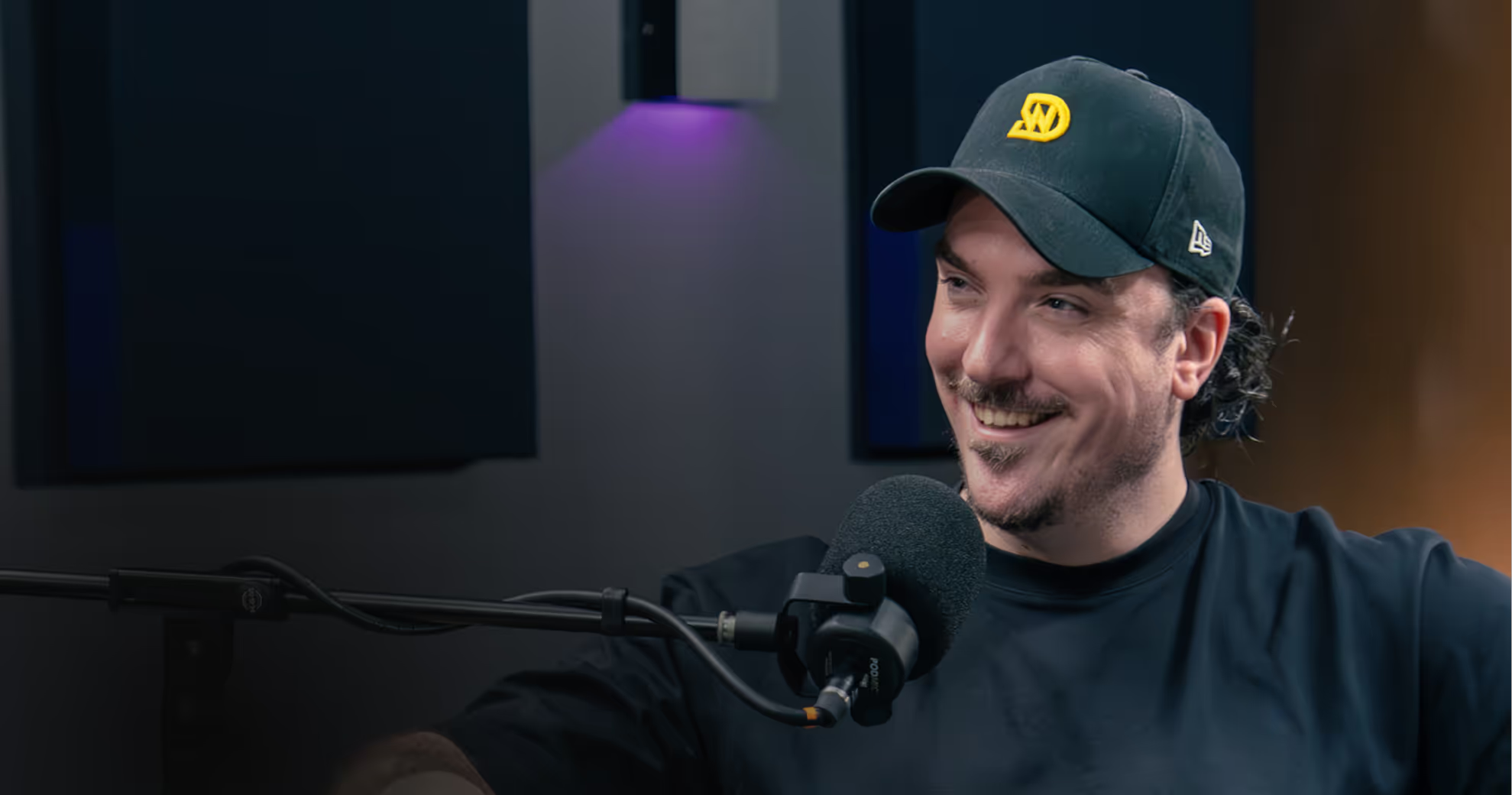
Work With Me

Enquire With Dain’s Team
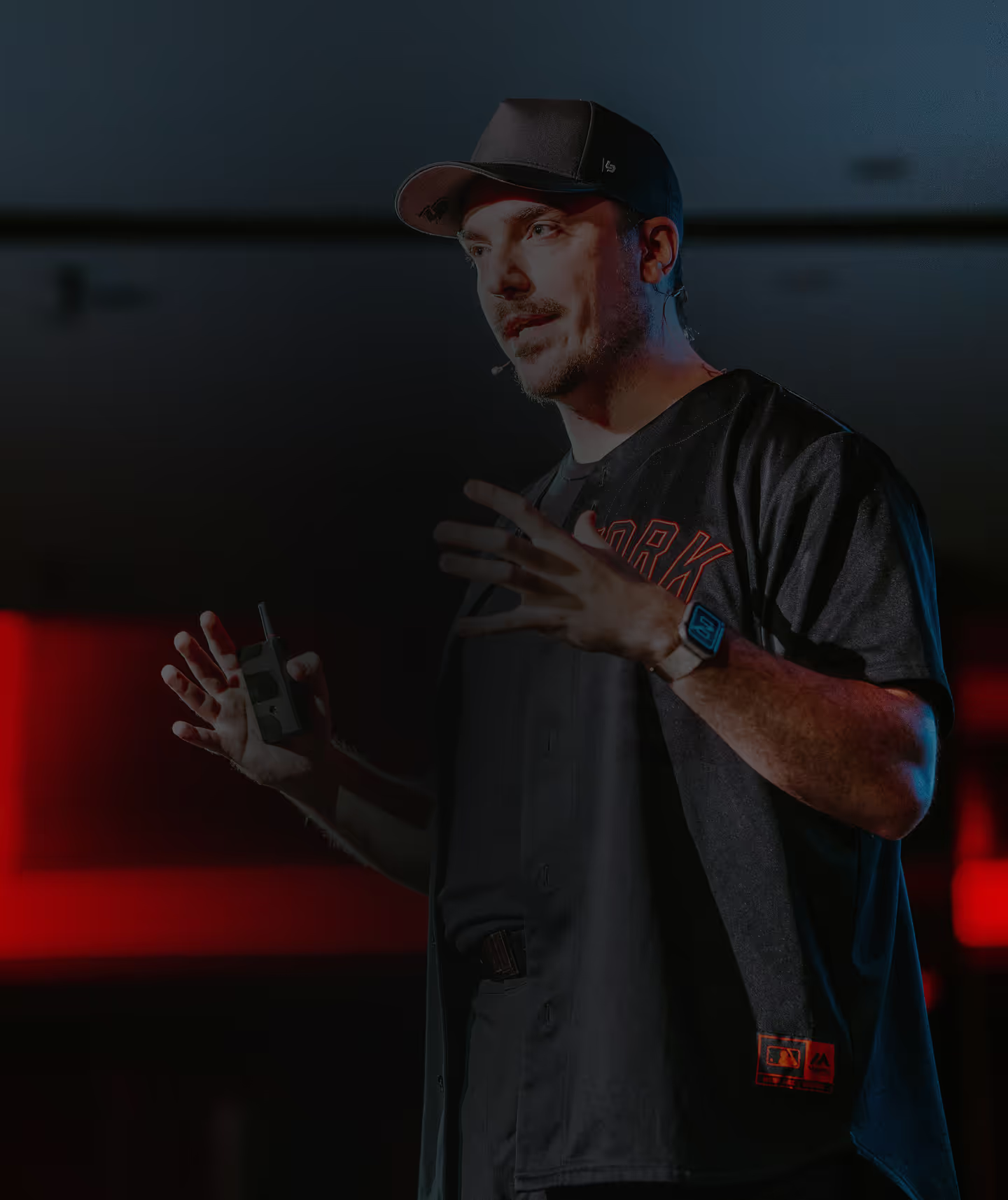
Enquire For Speaking

Let's Get You Branded
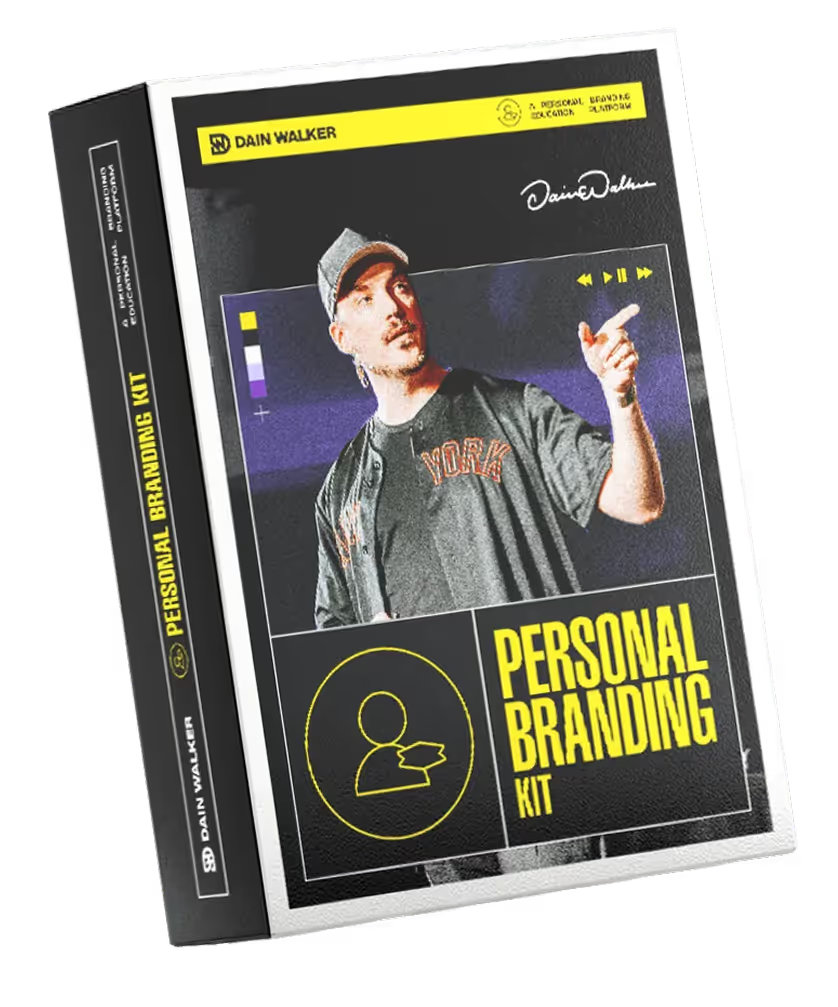
Apply to be a guest
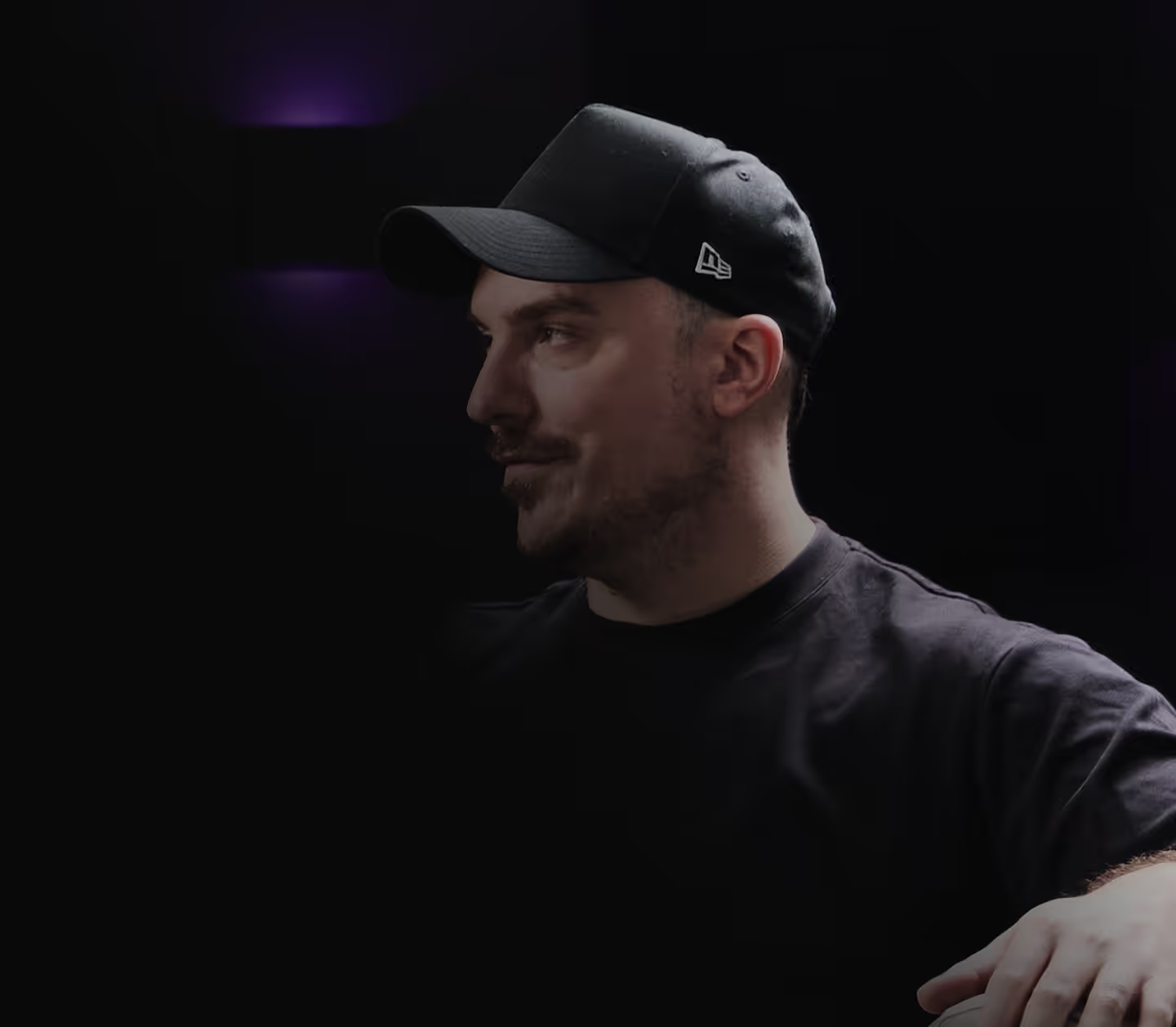
Dive into insights from industry leaders and experts.
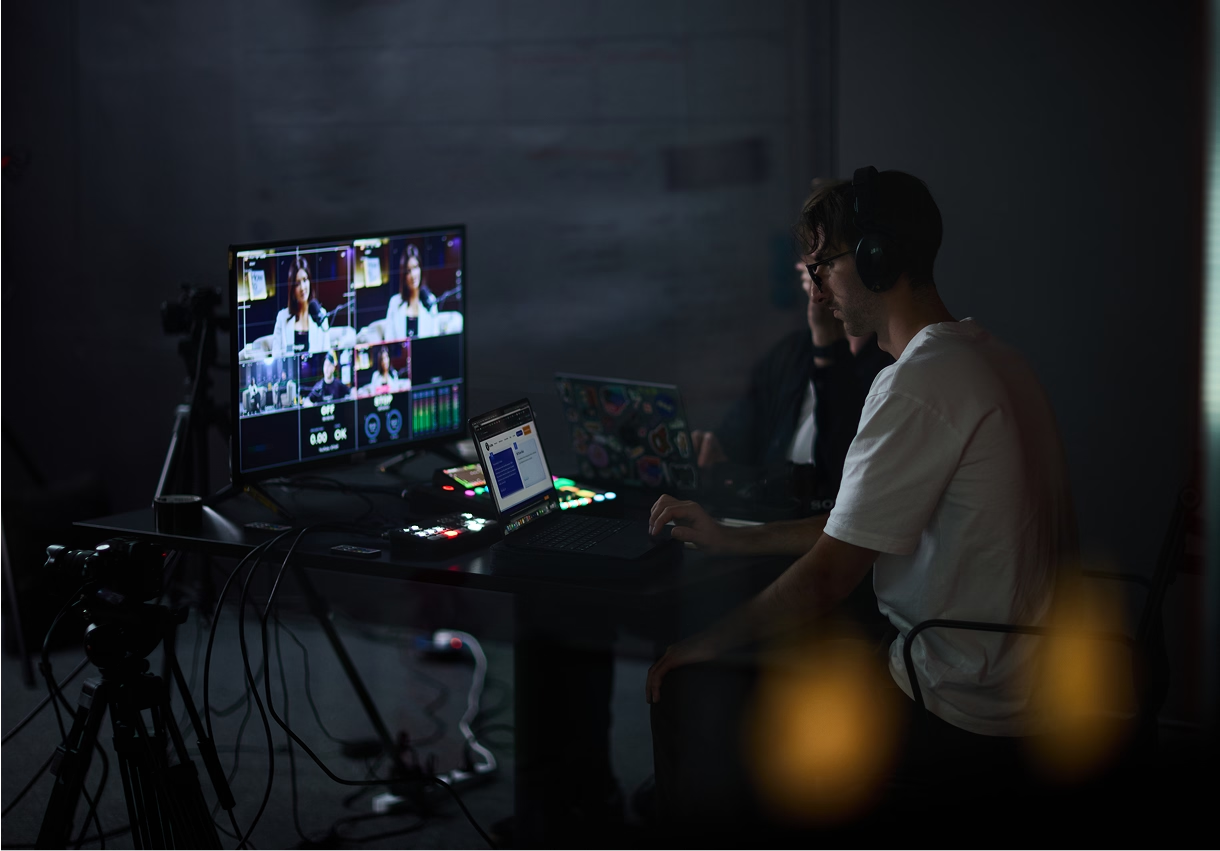
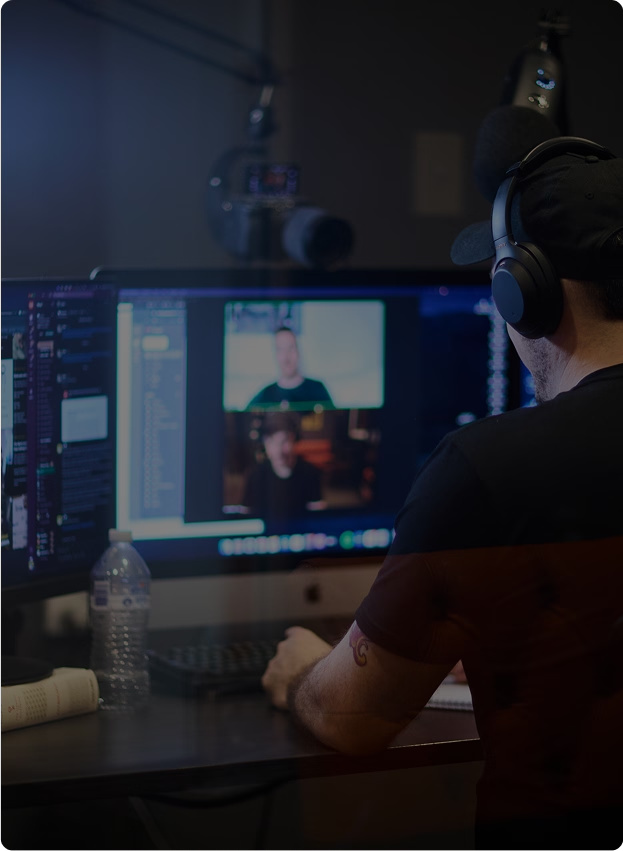
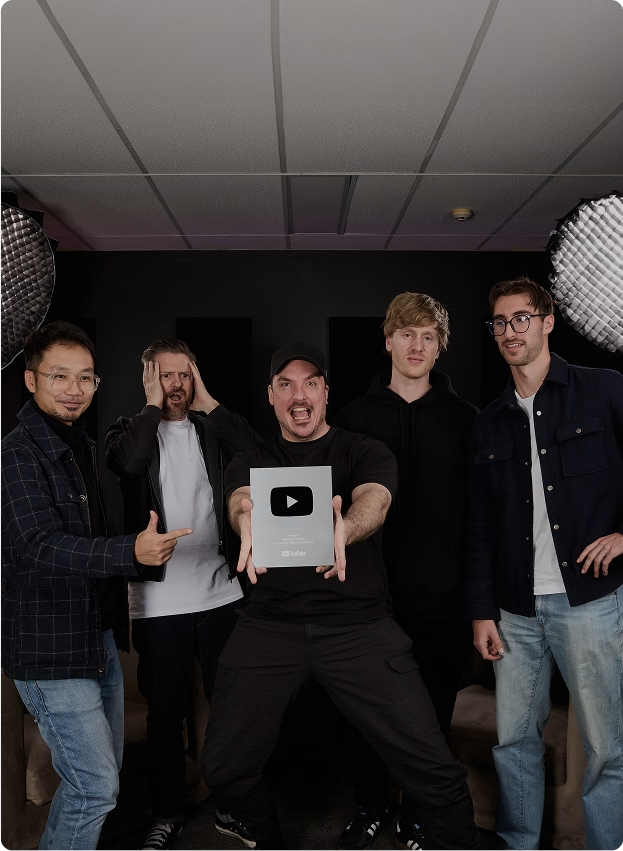
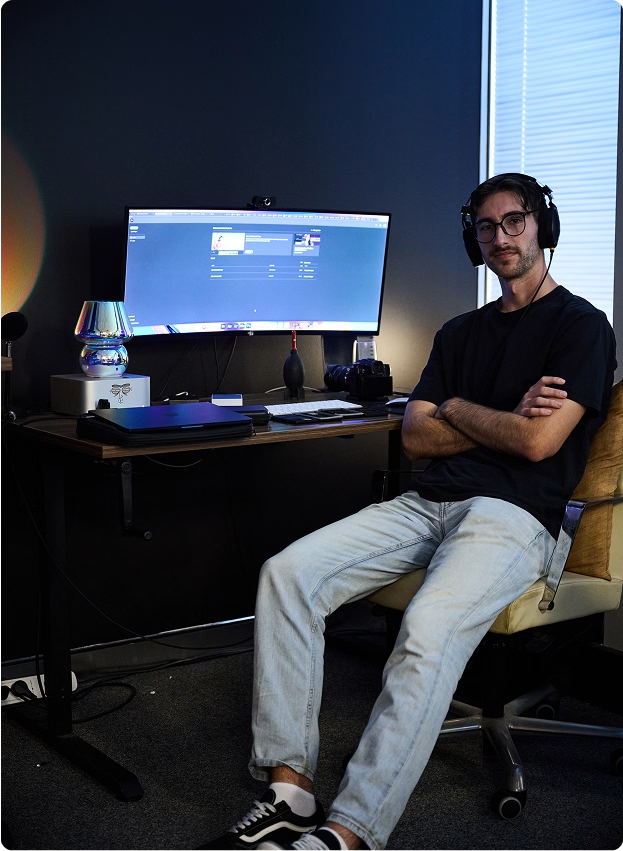
Stream now
Dive into expert advice and industry trends.


